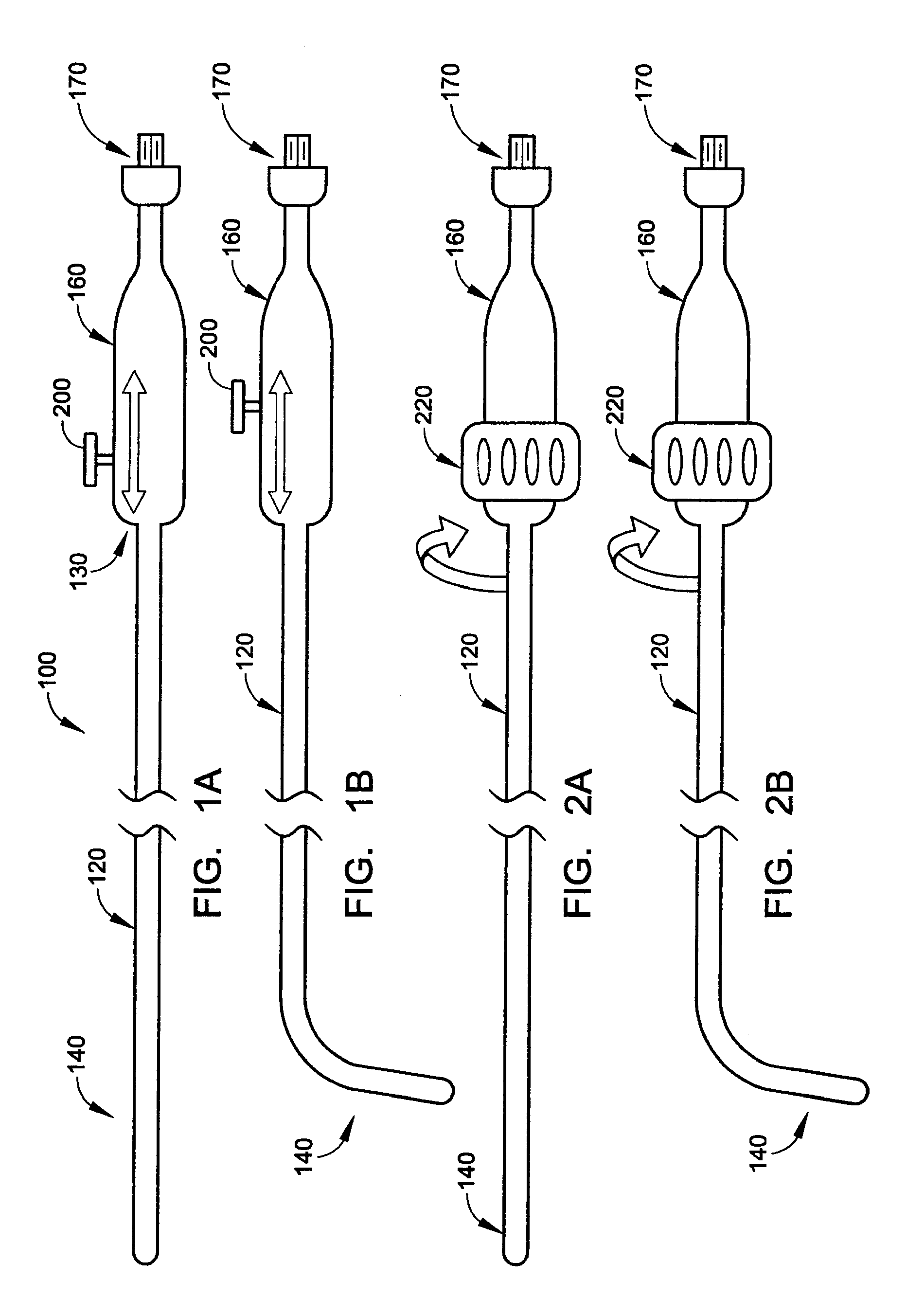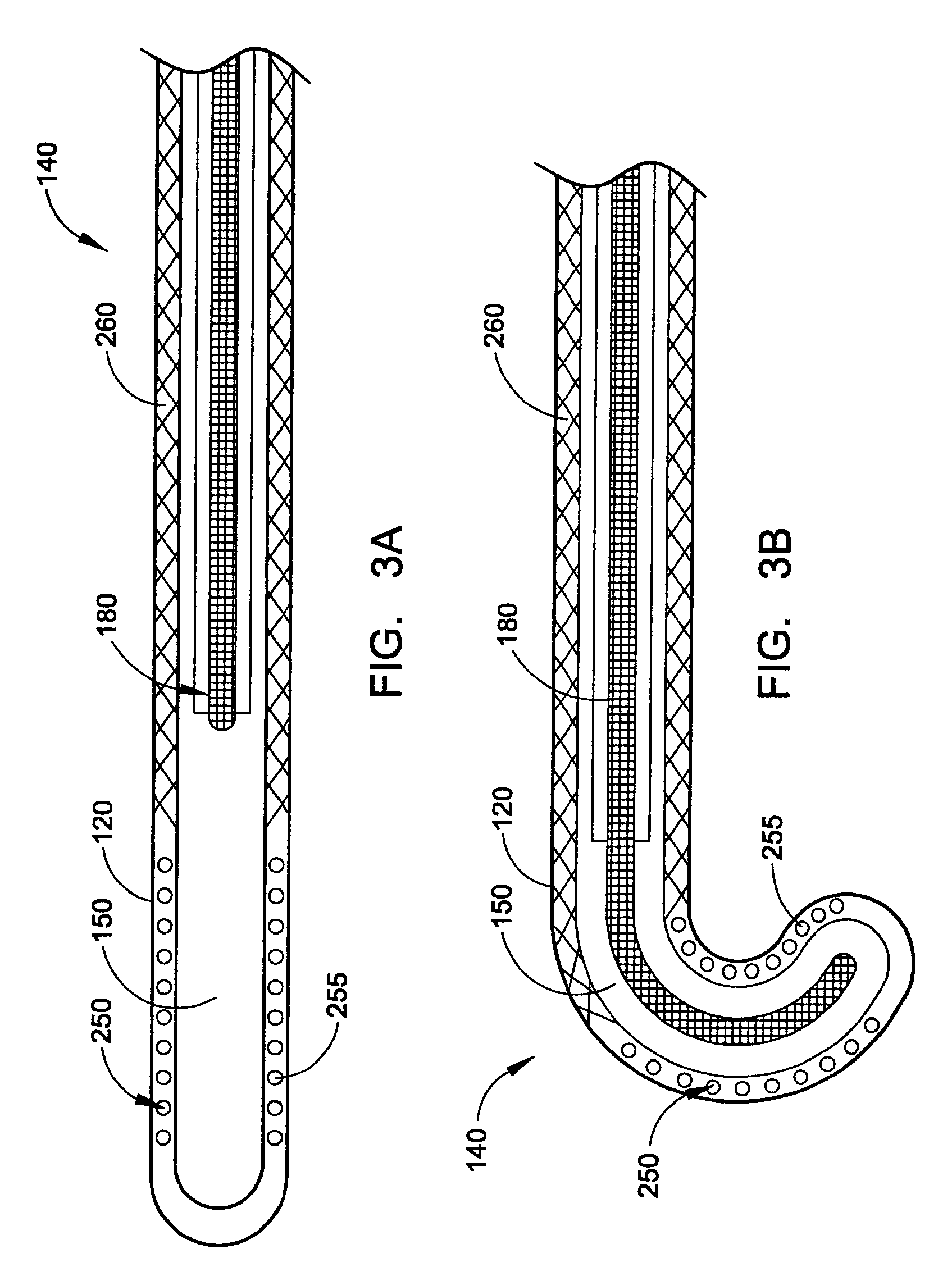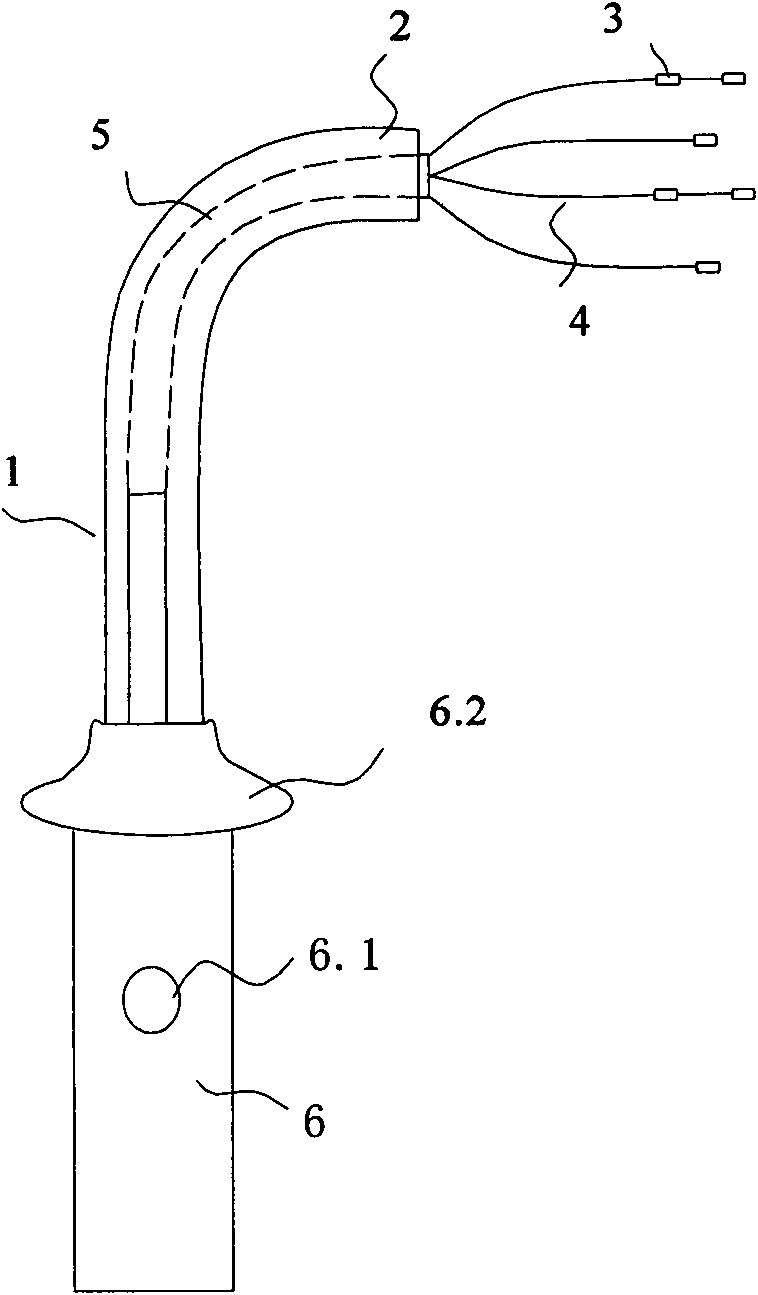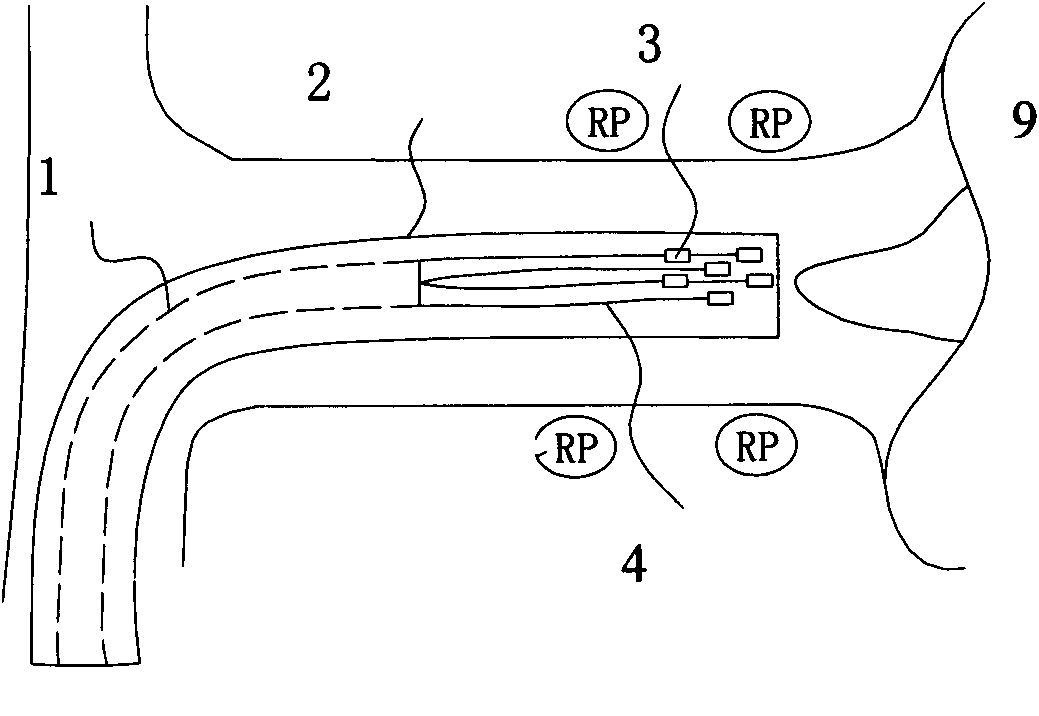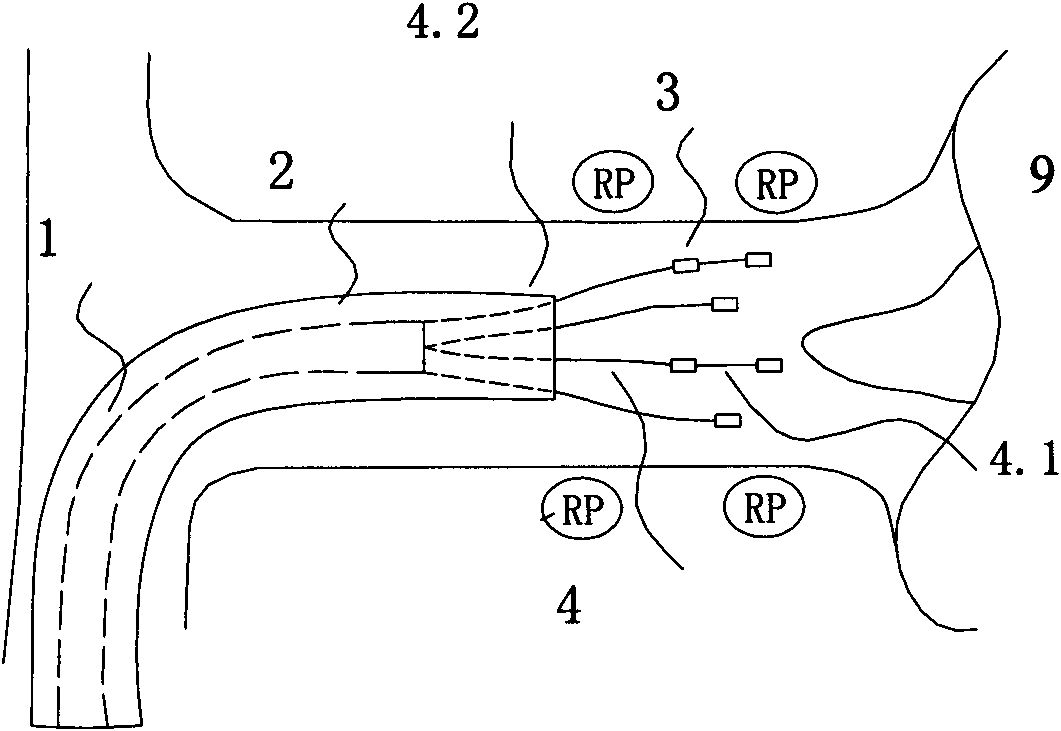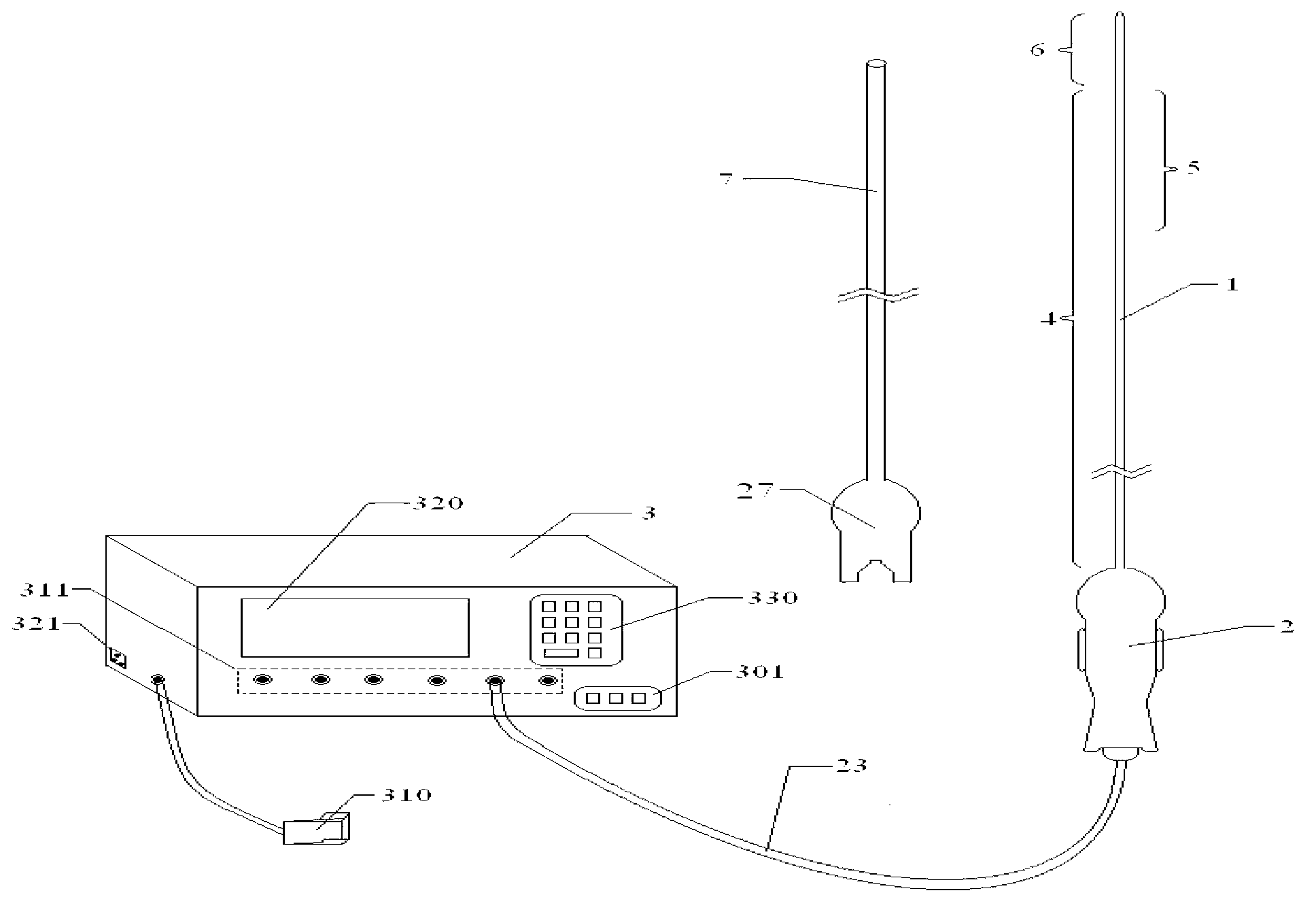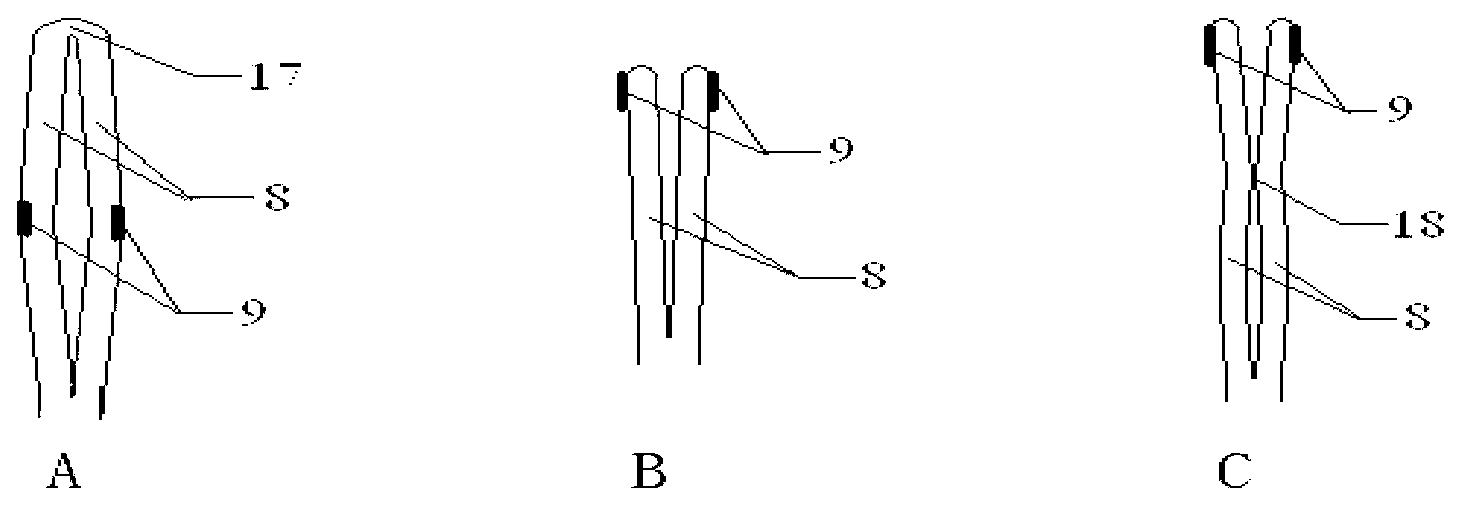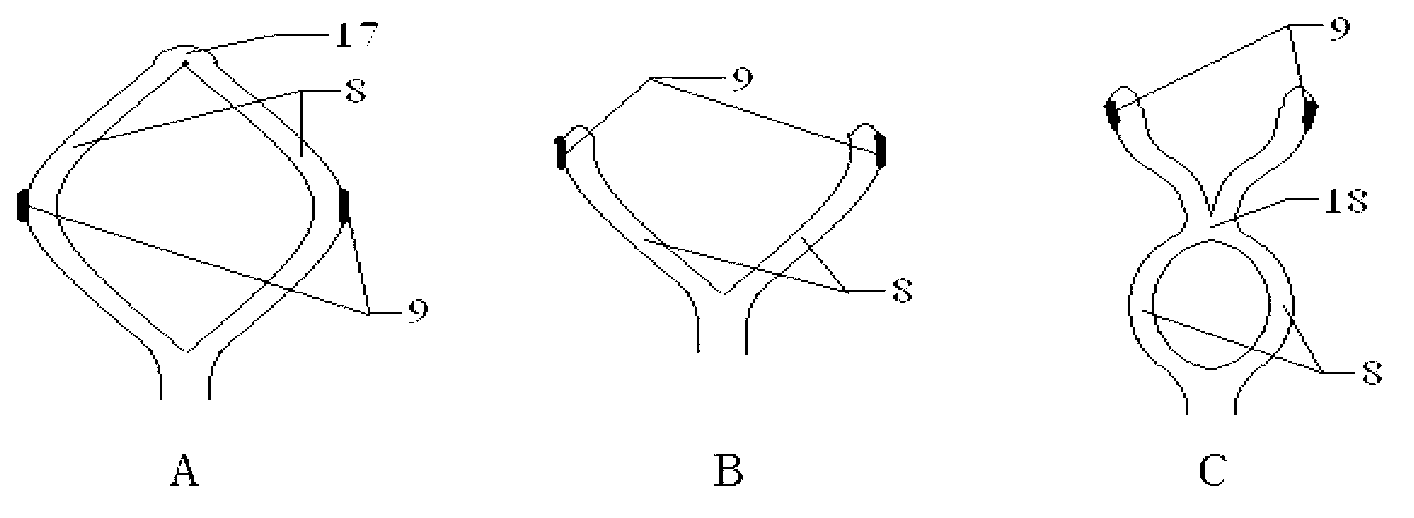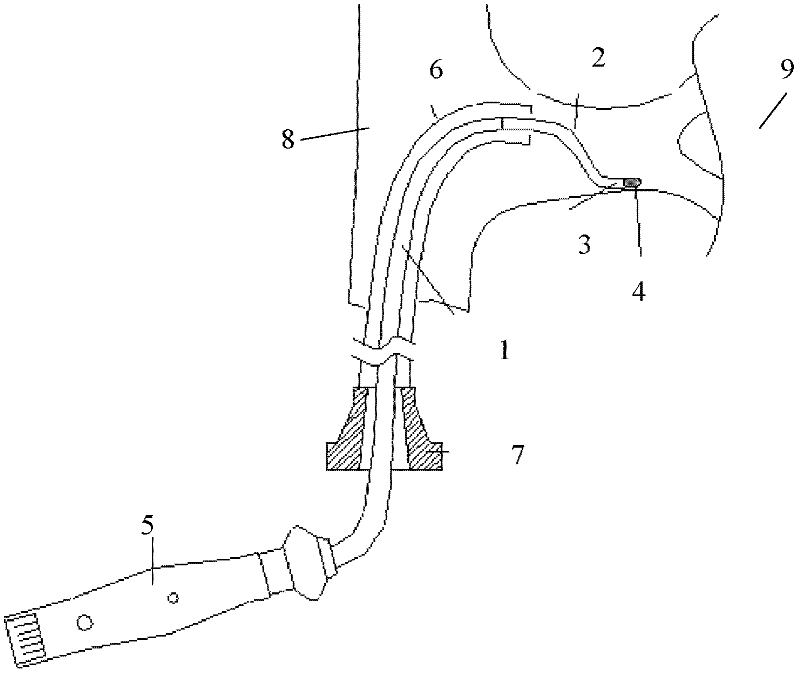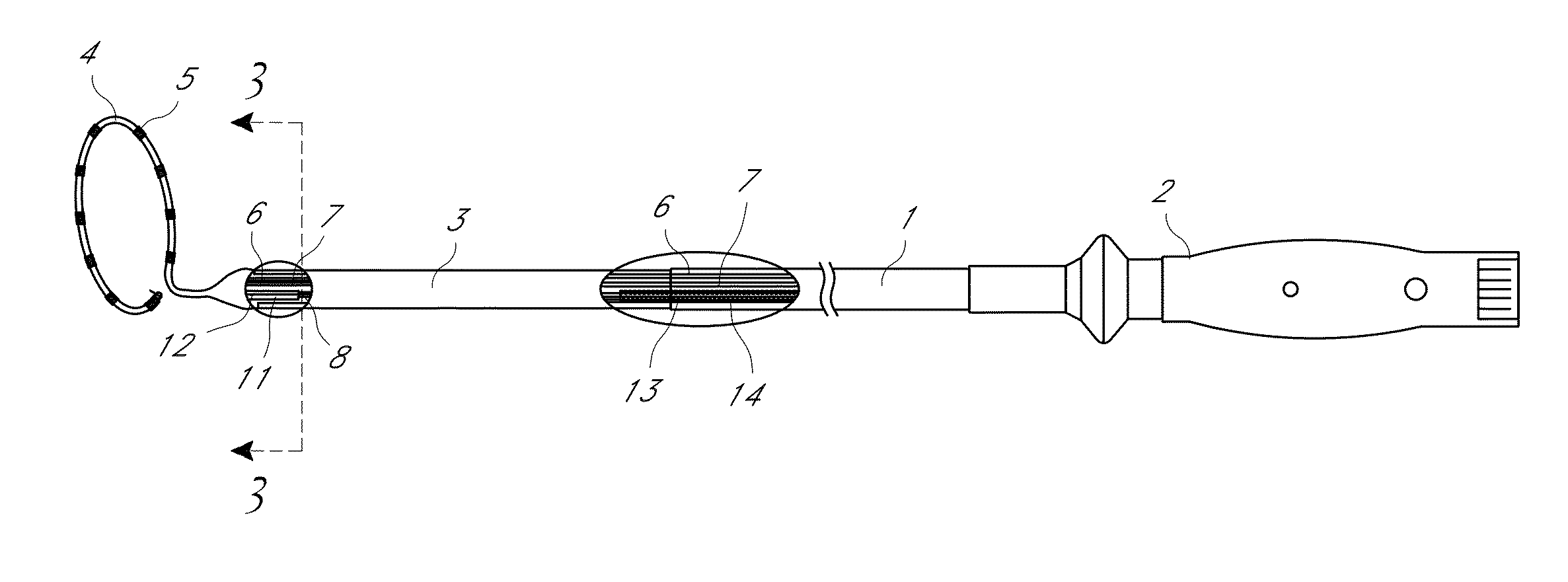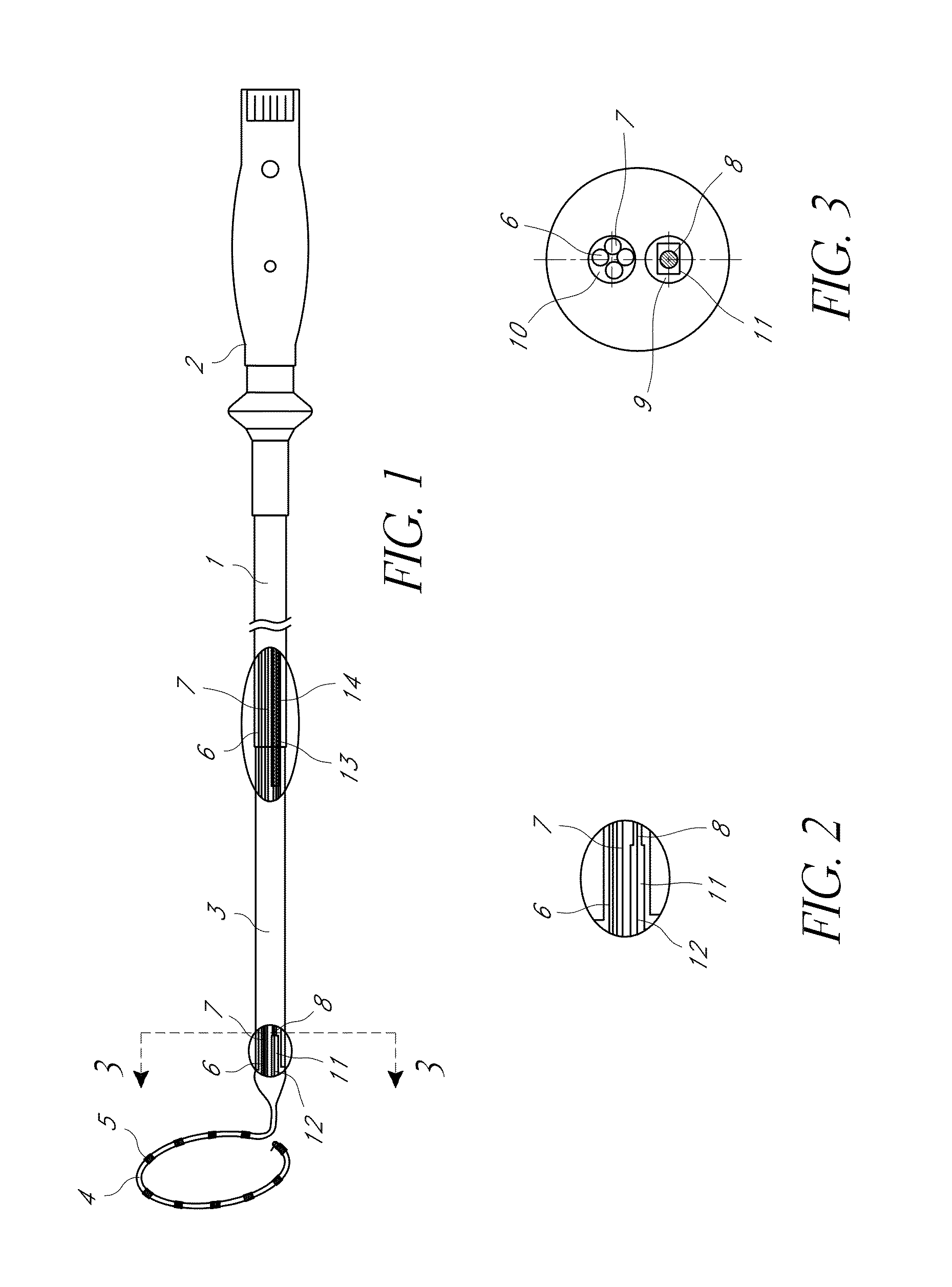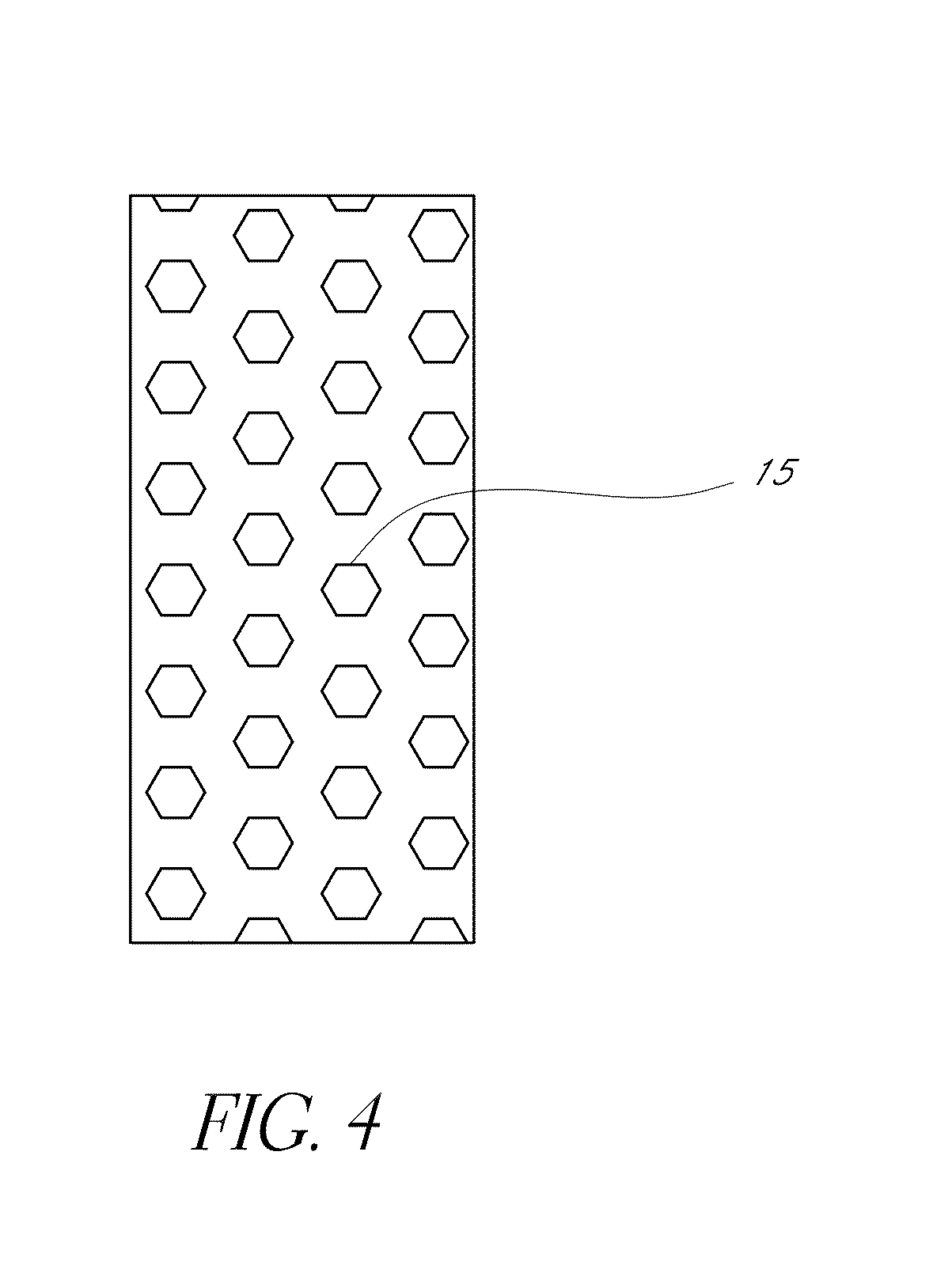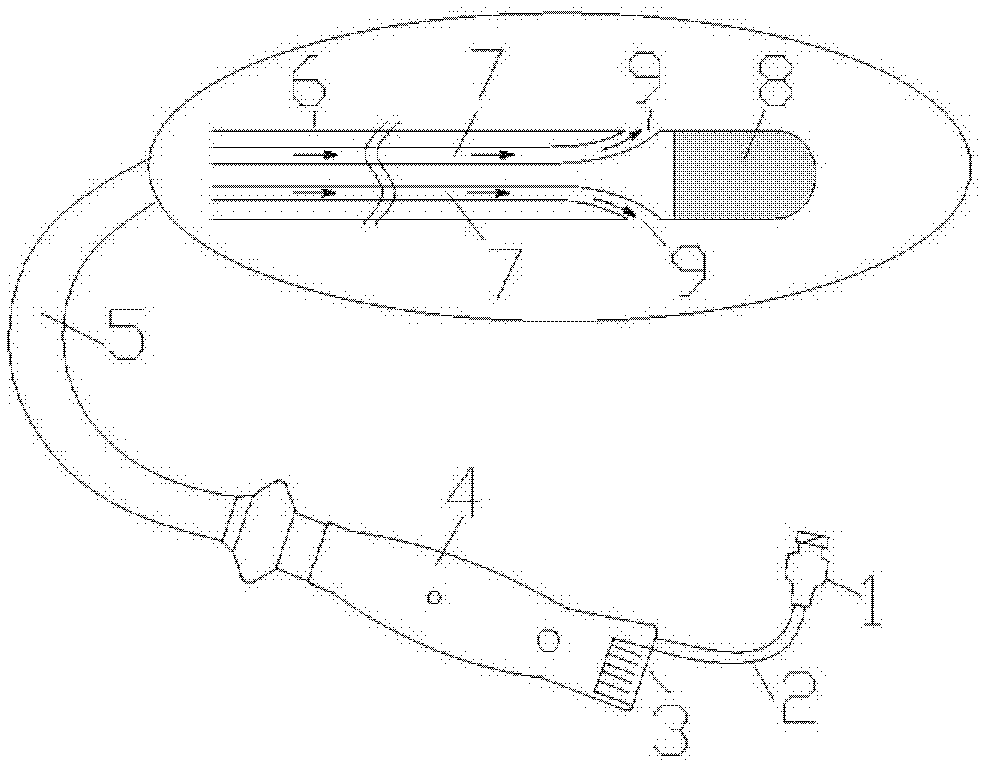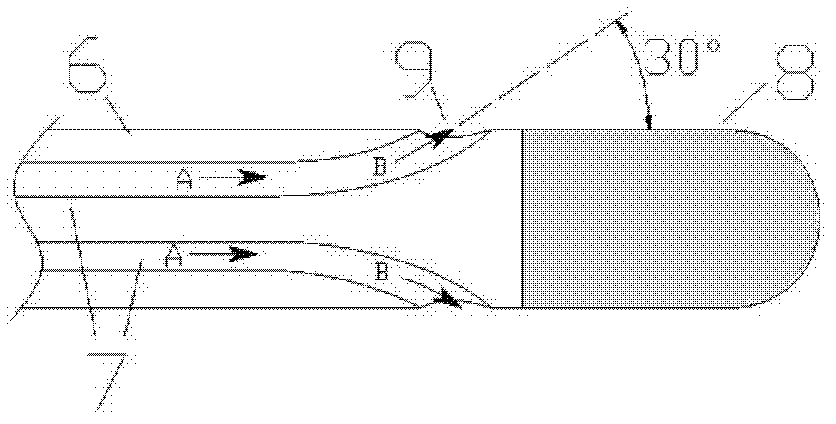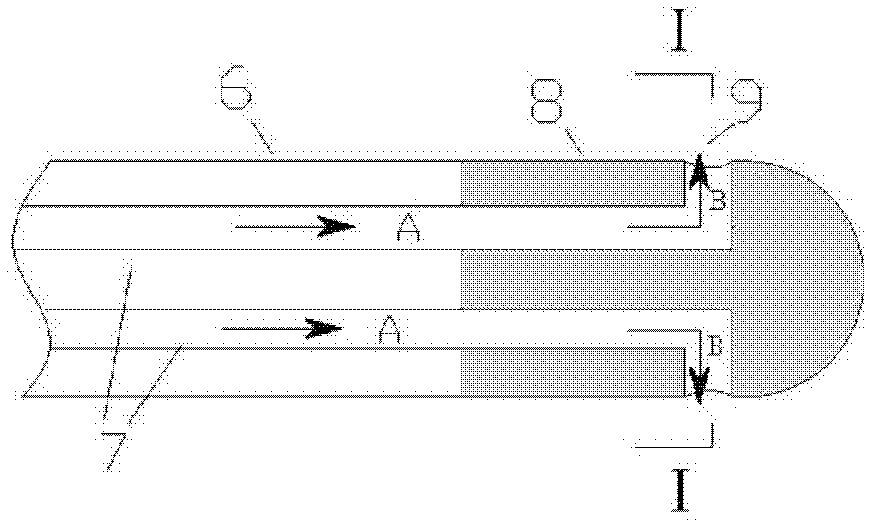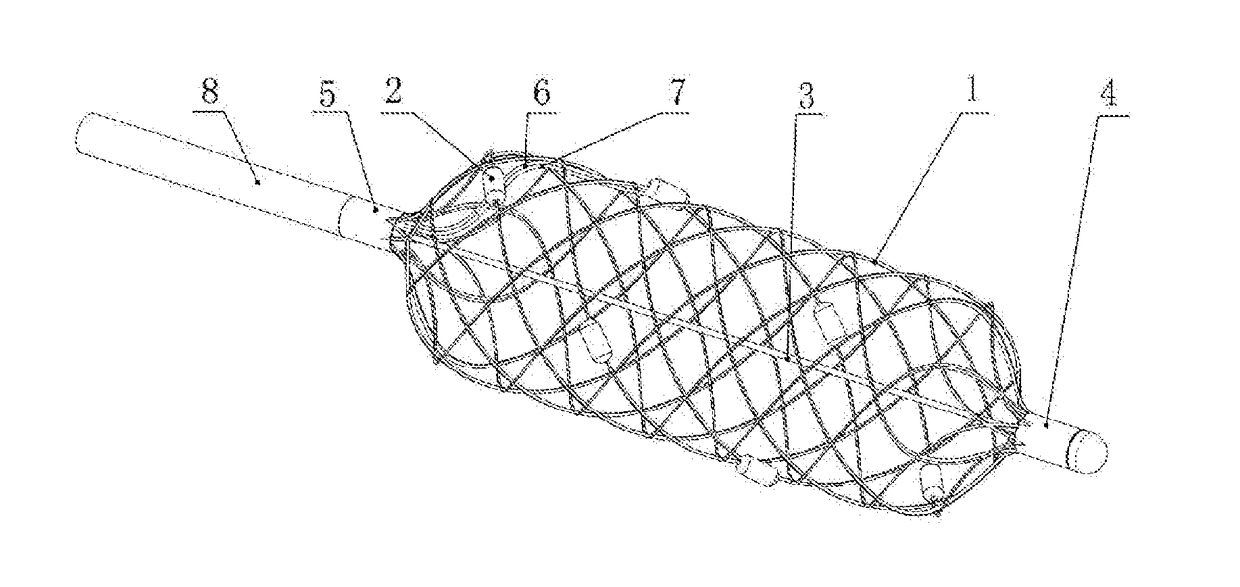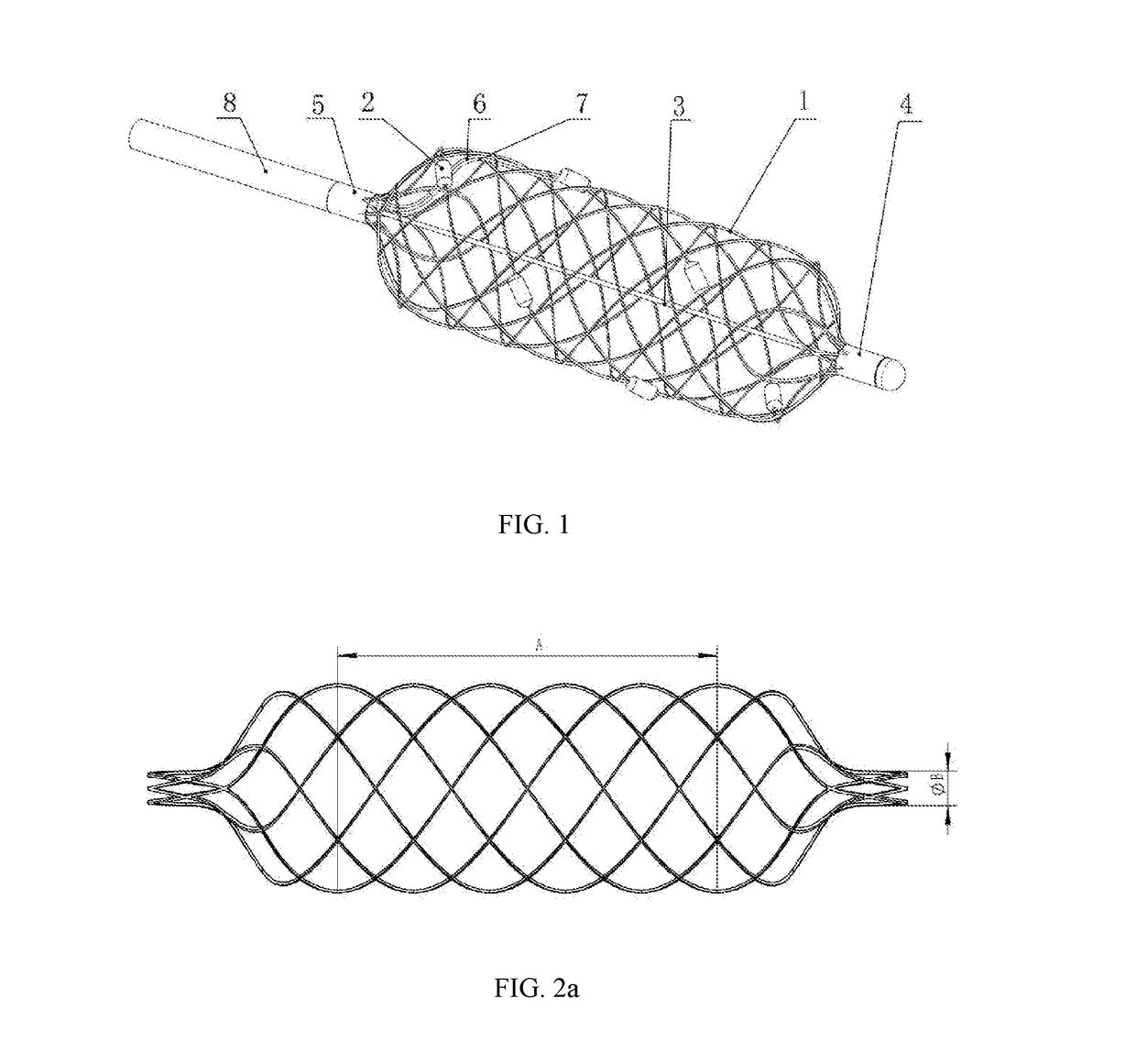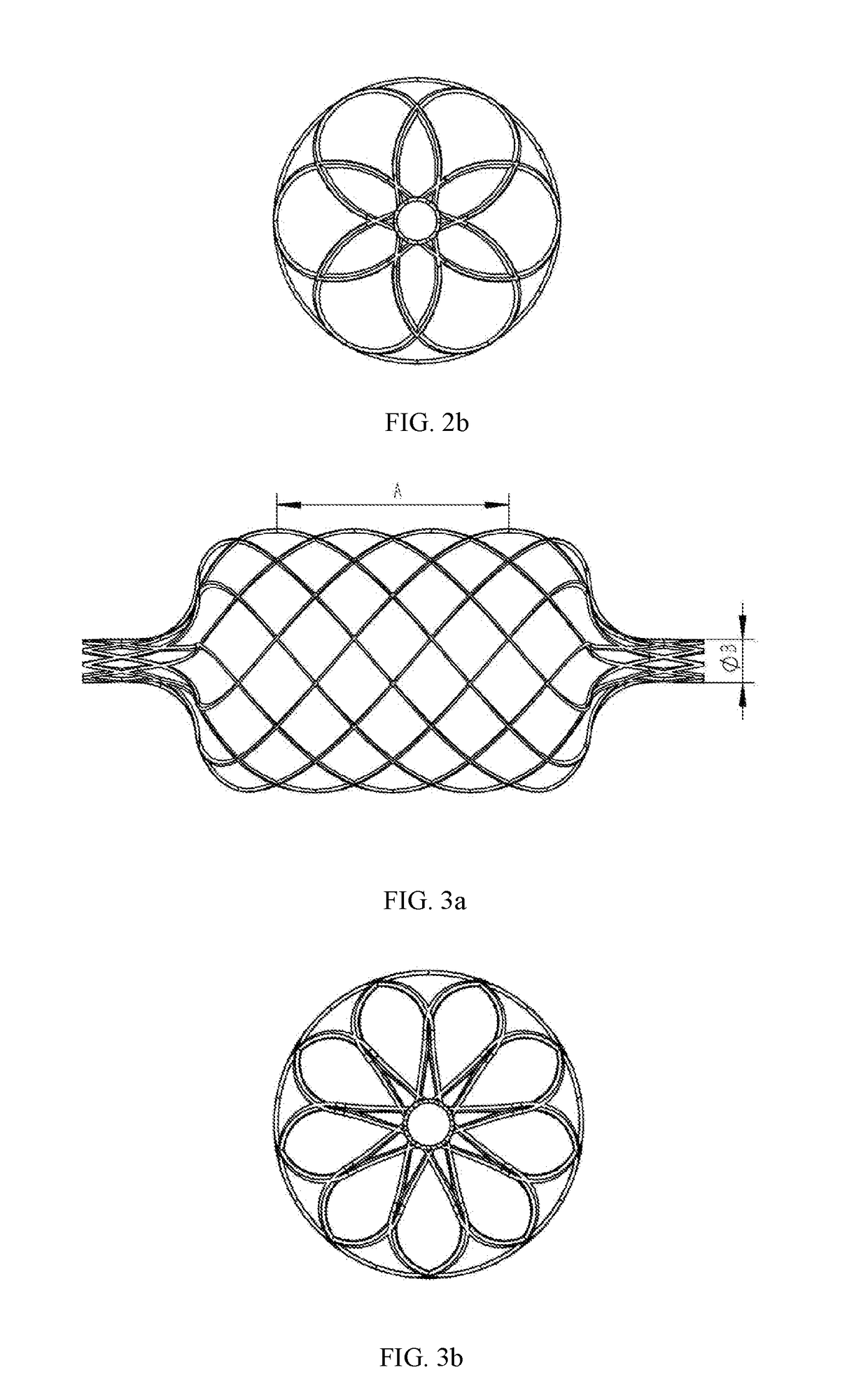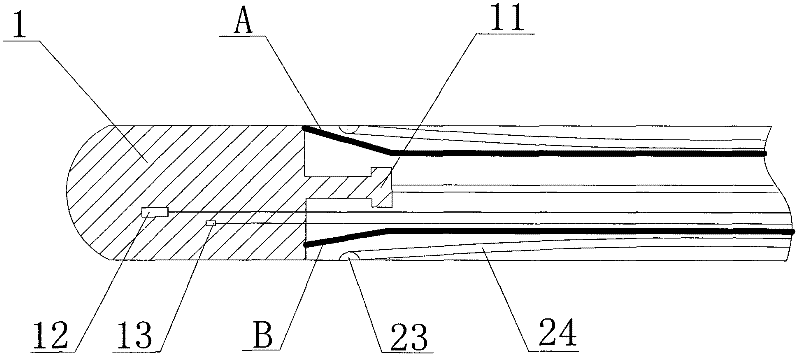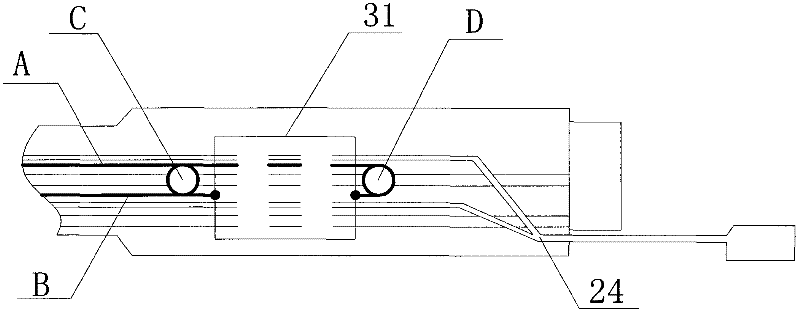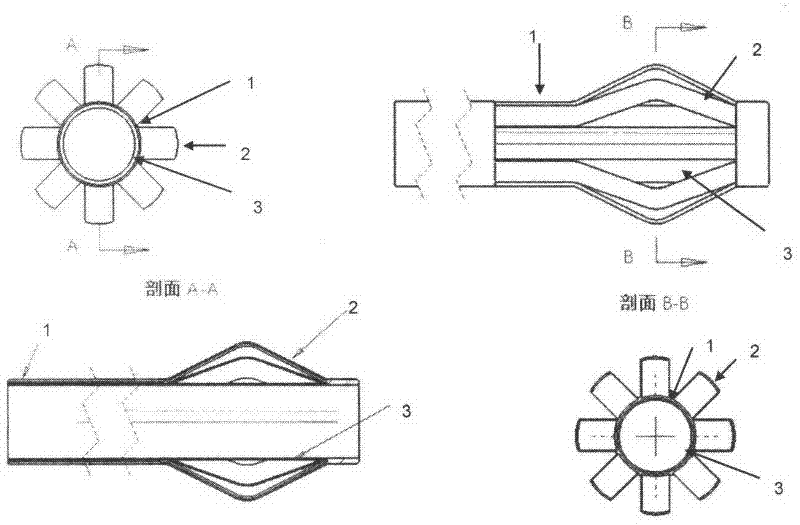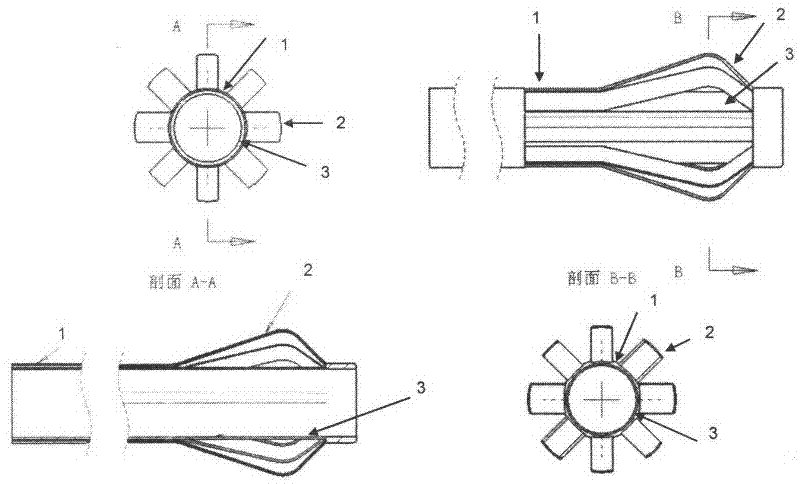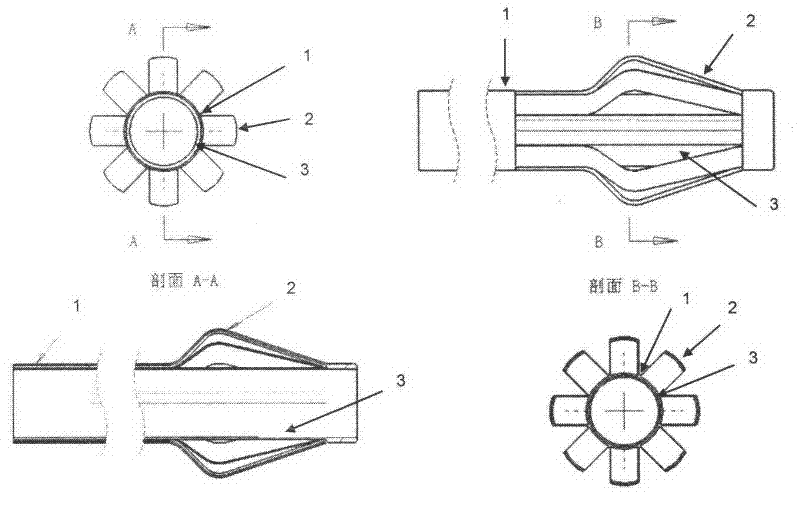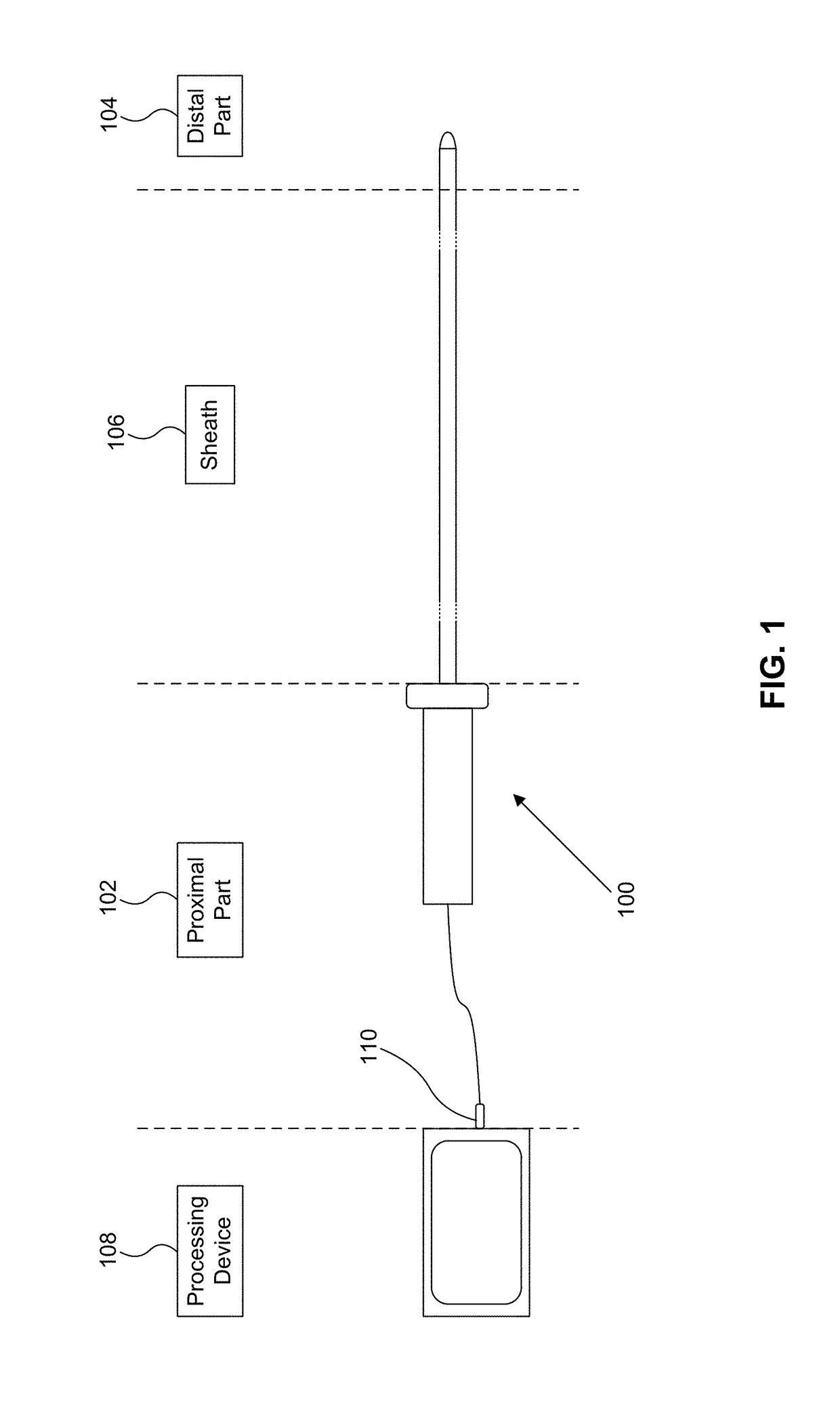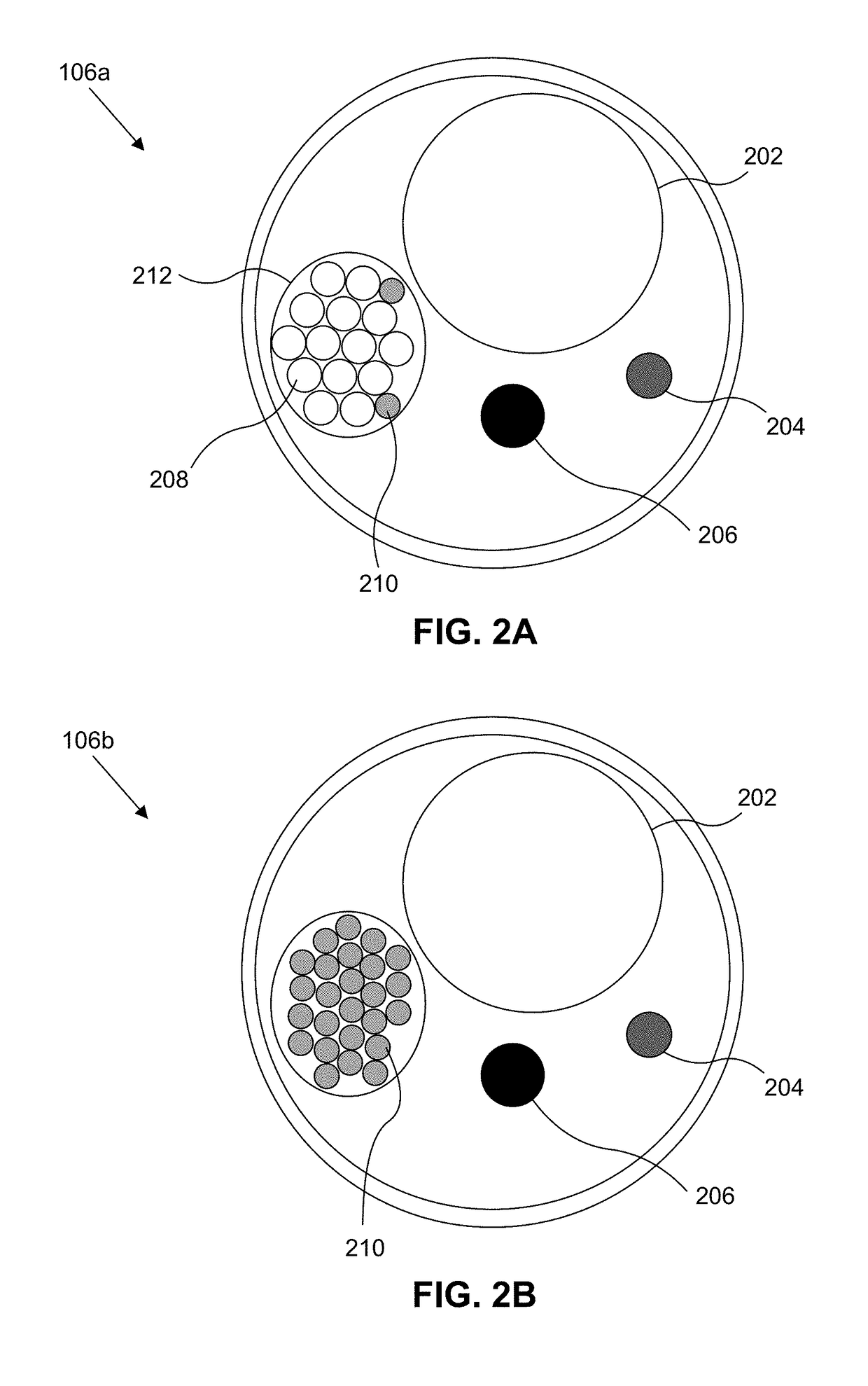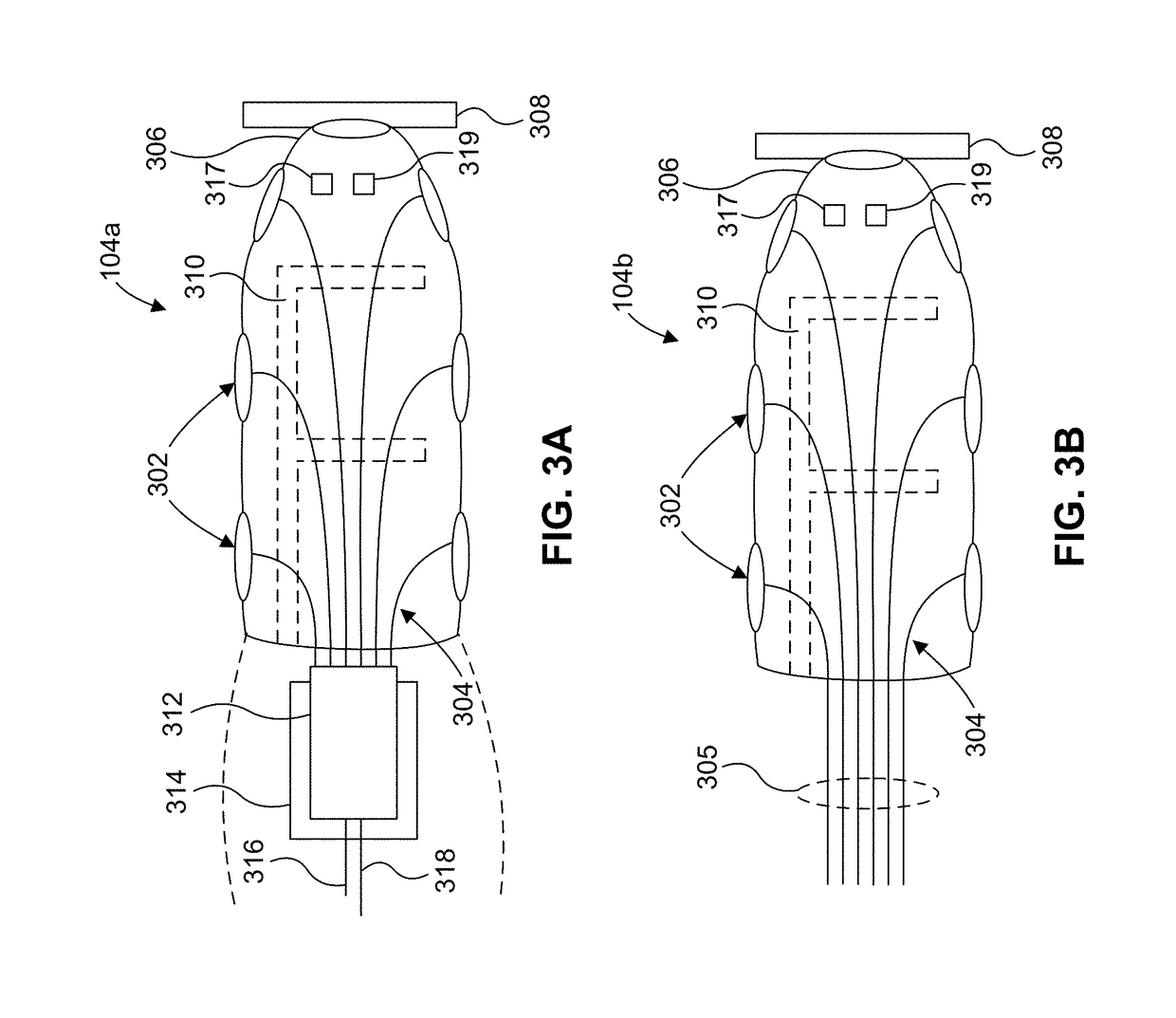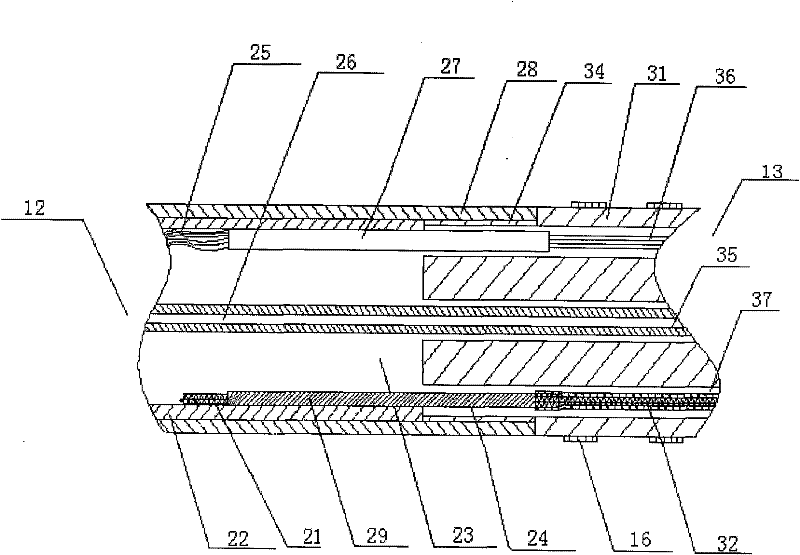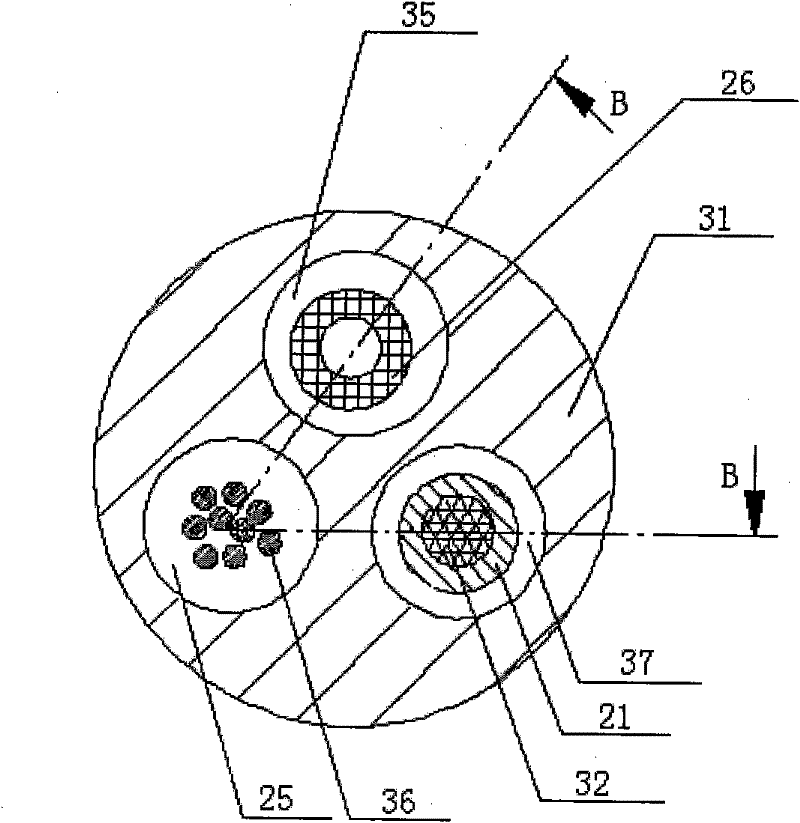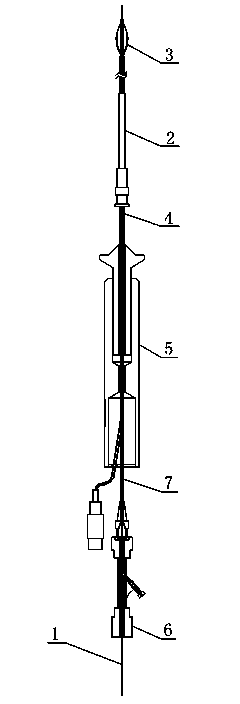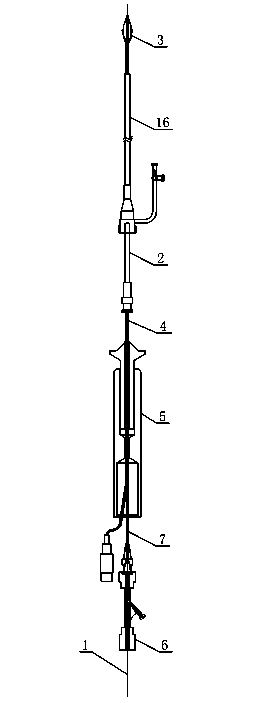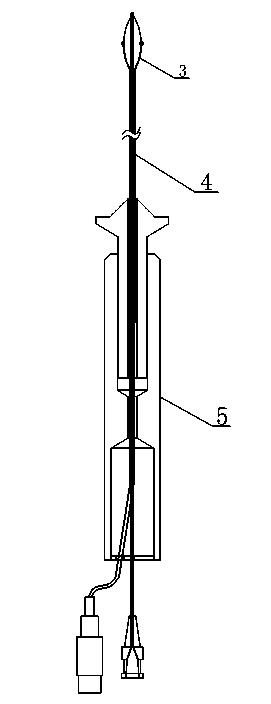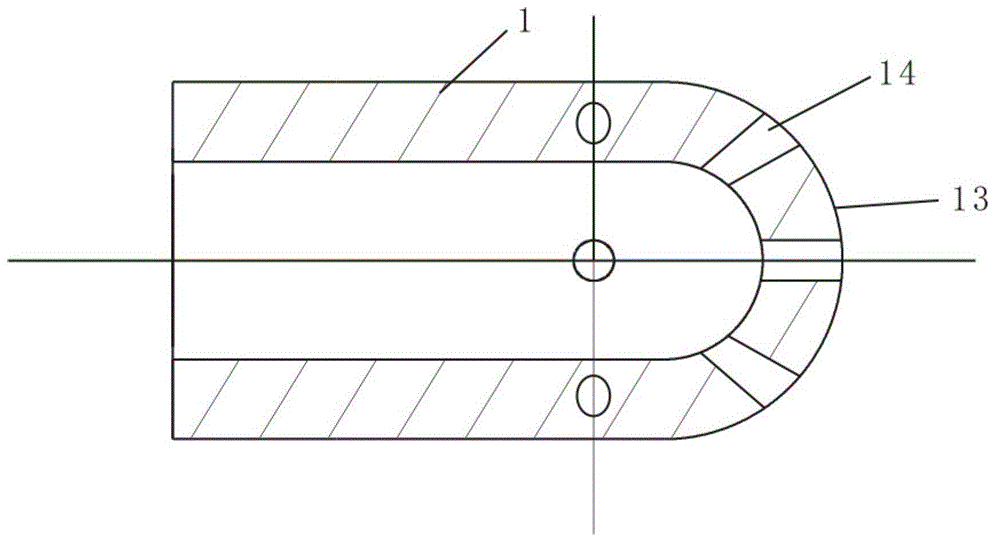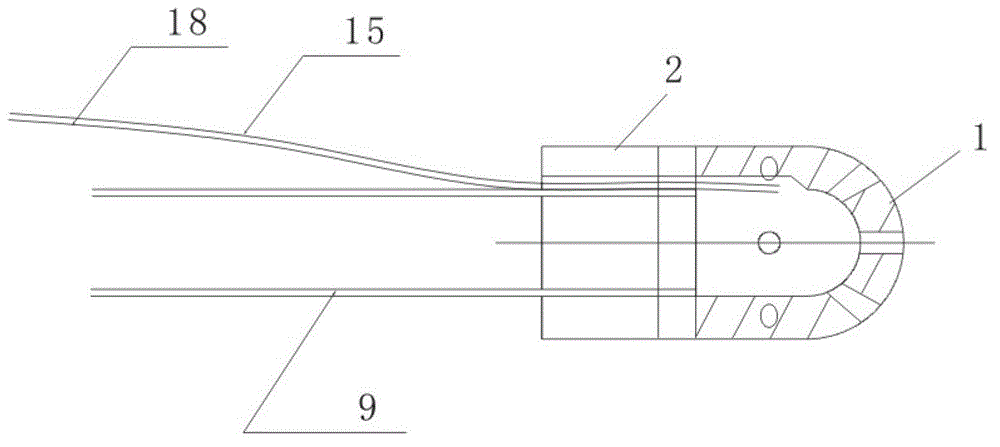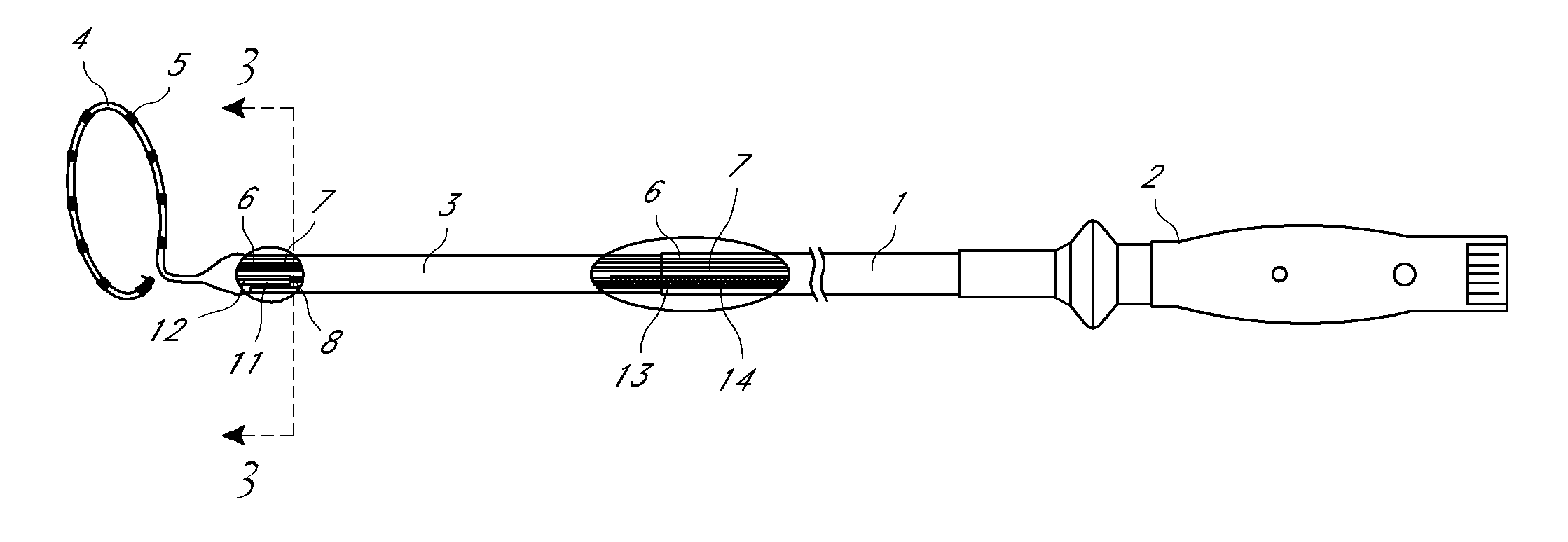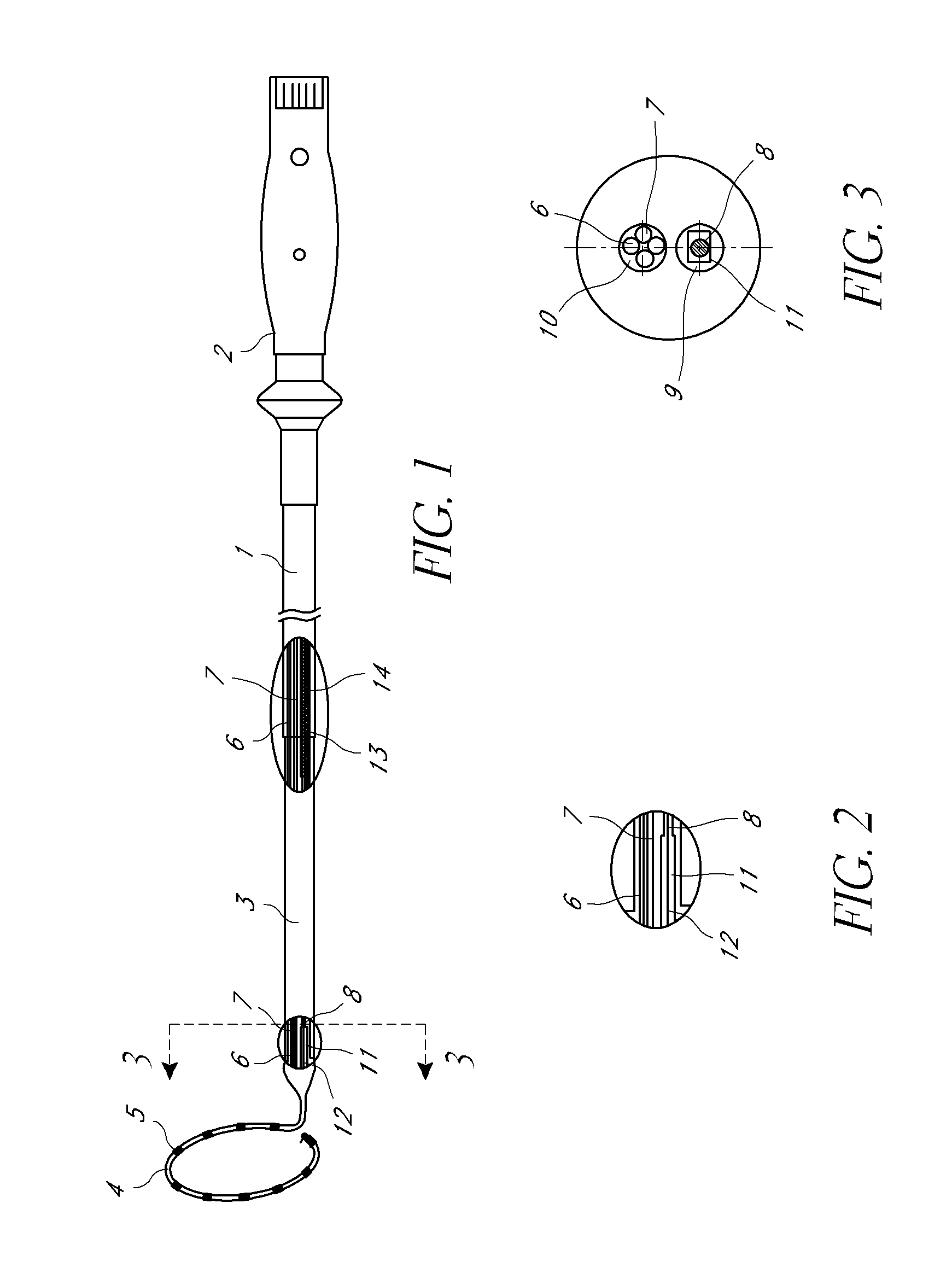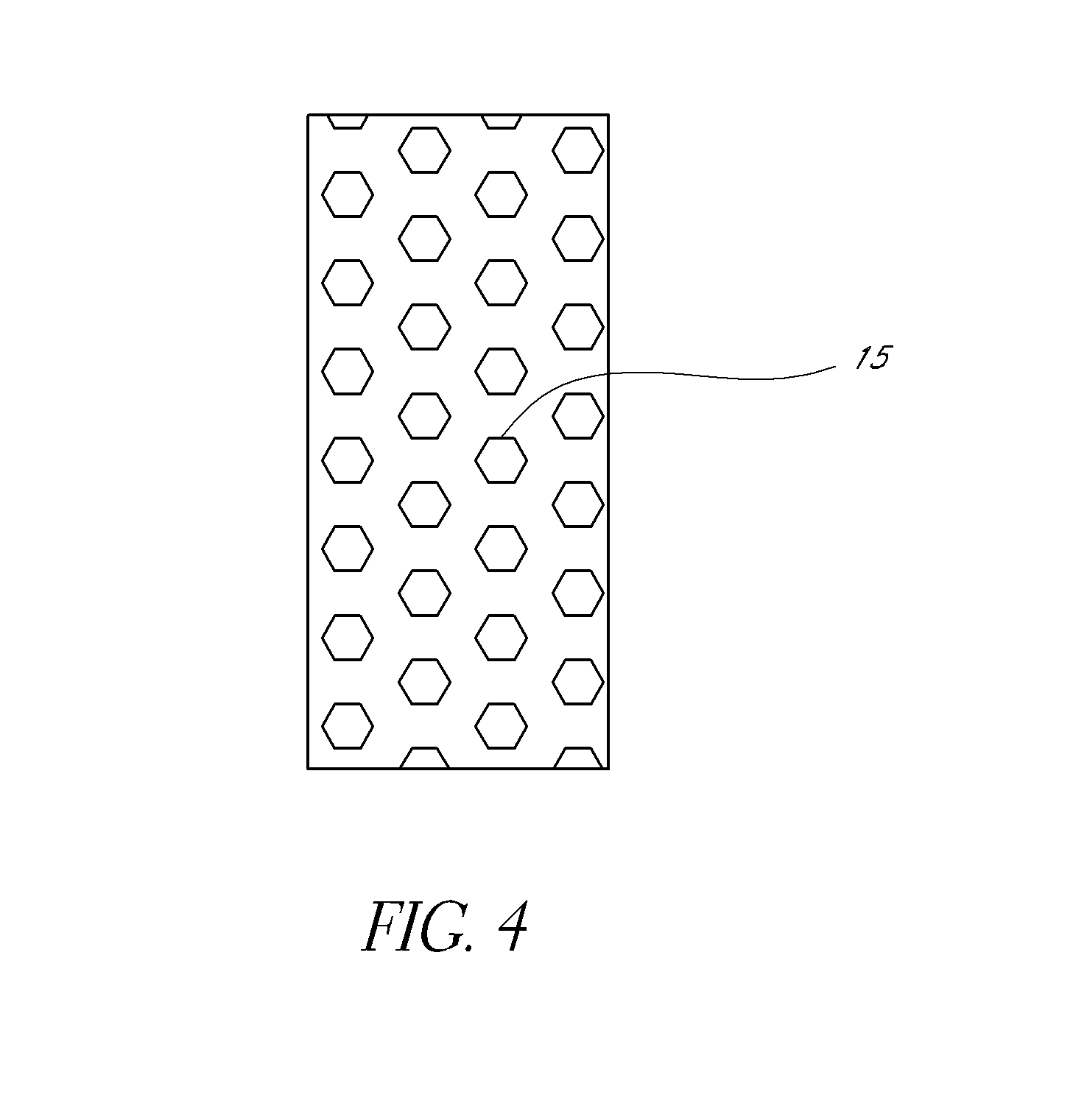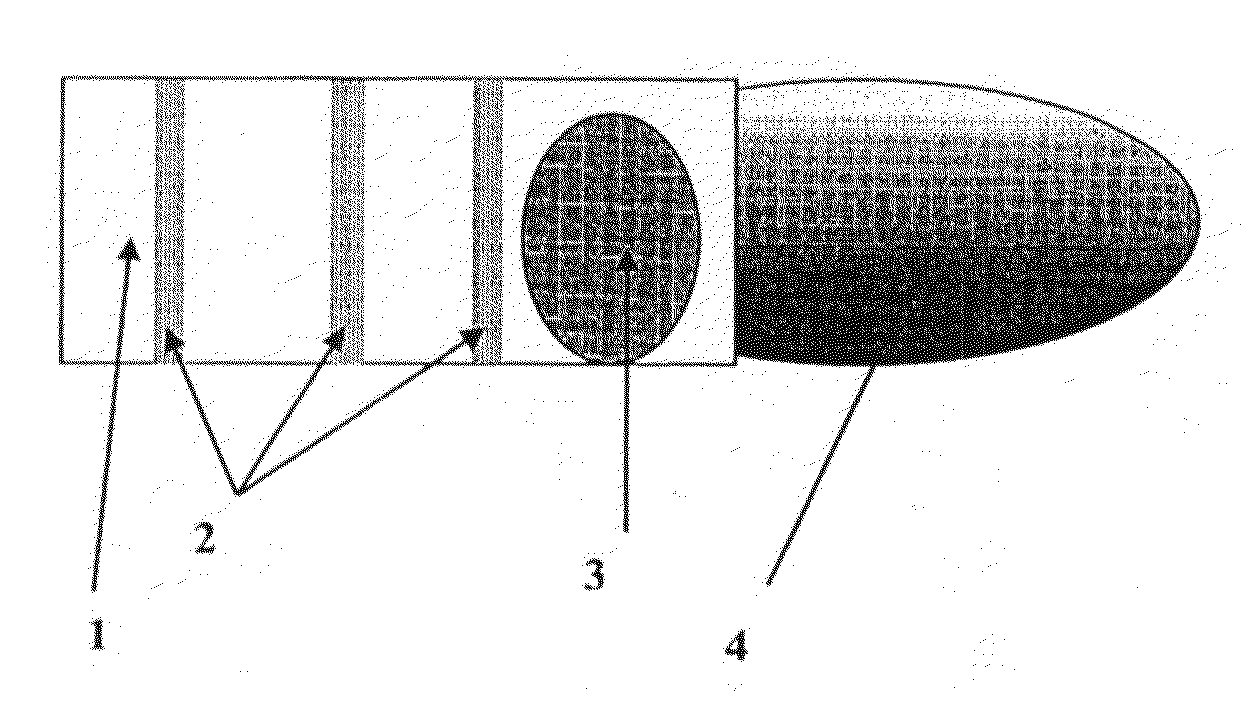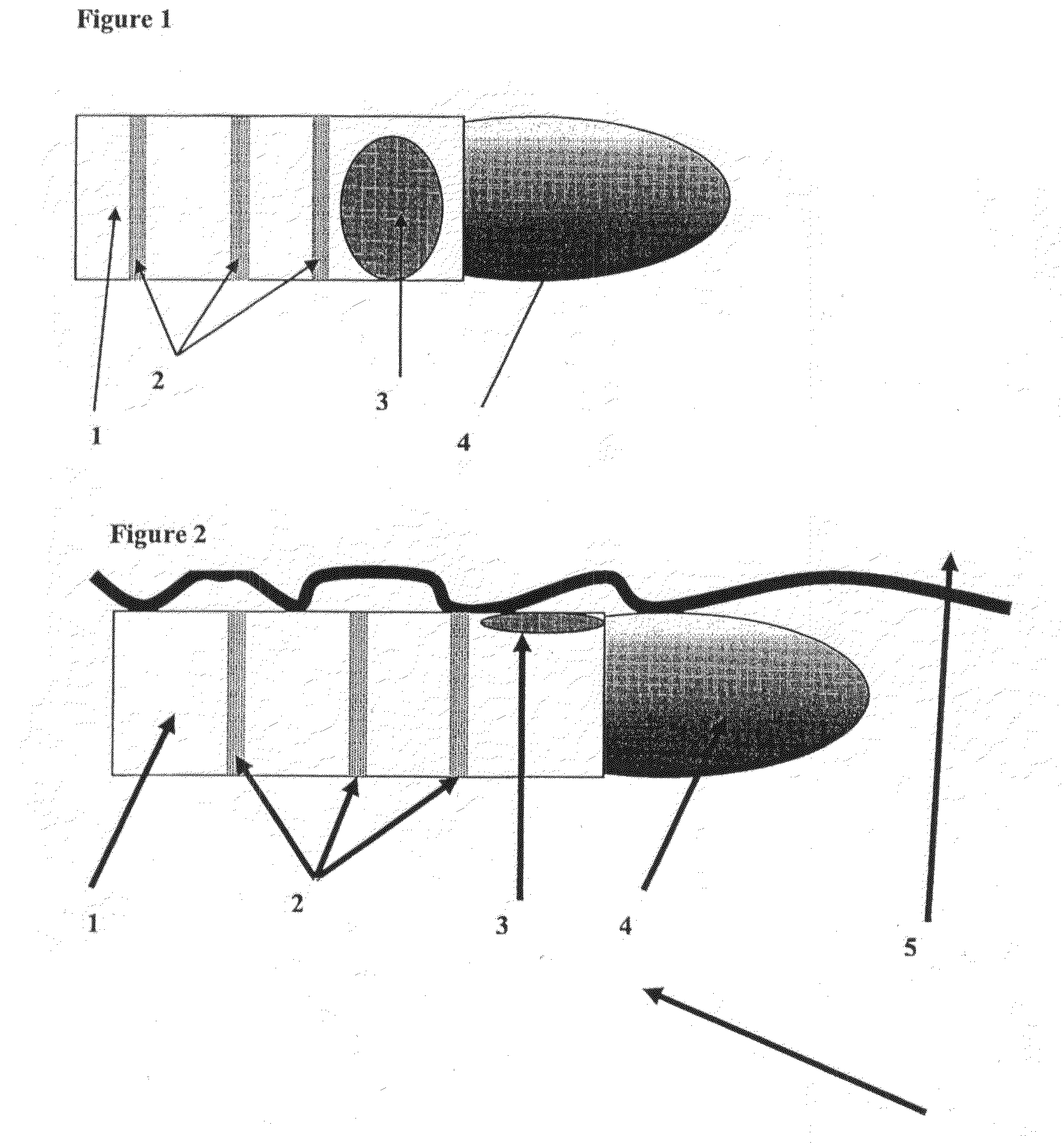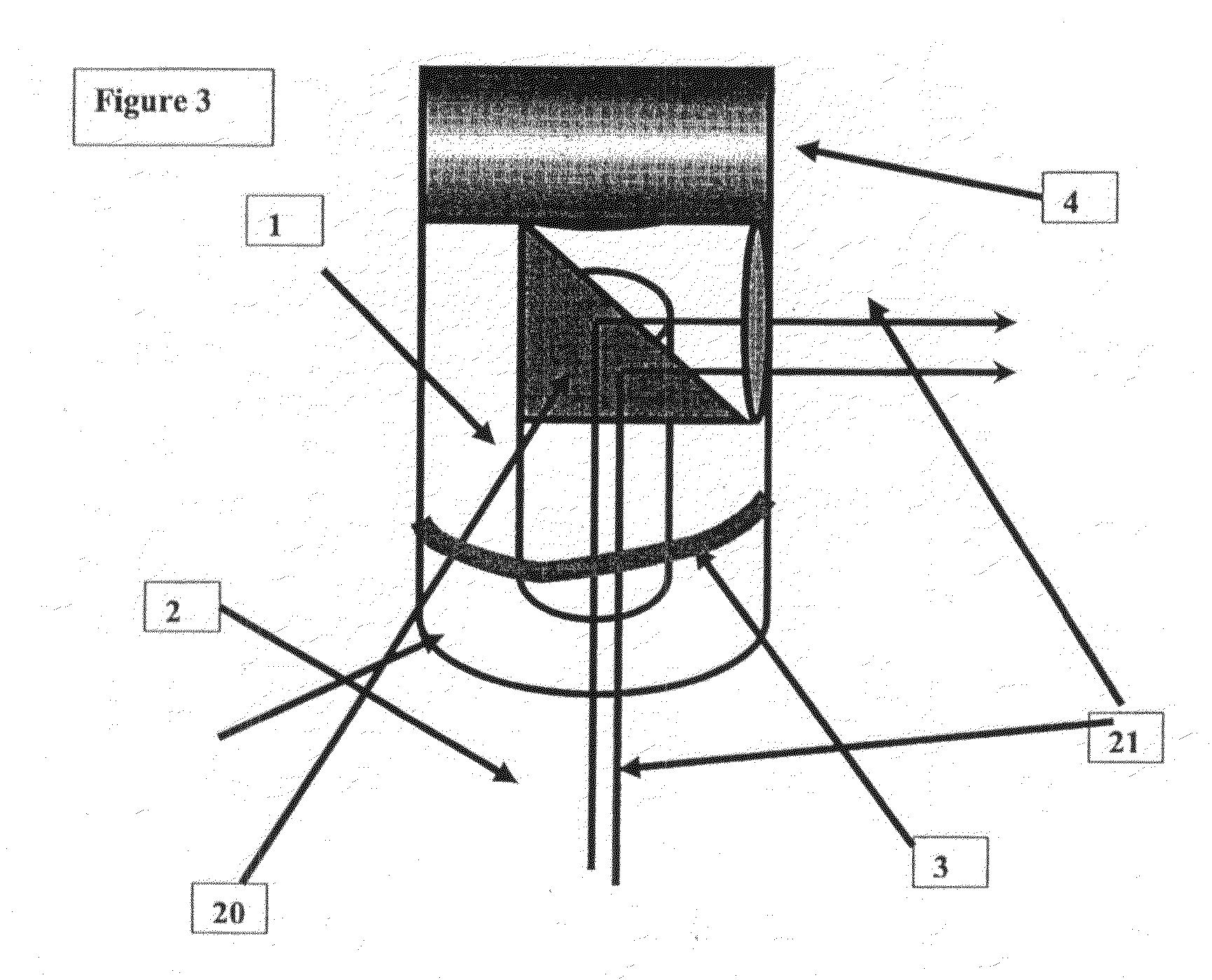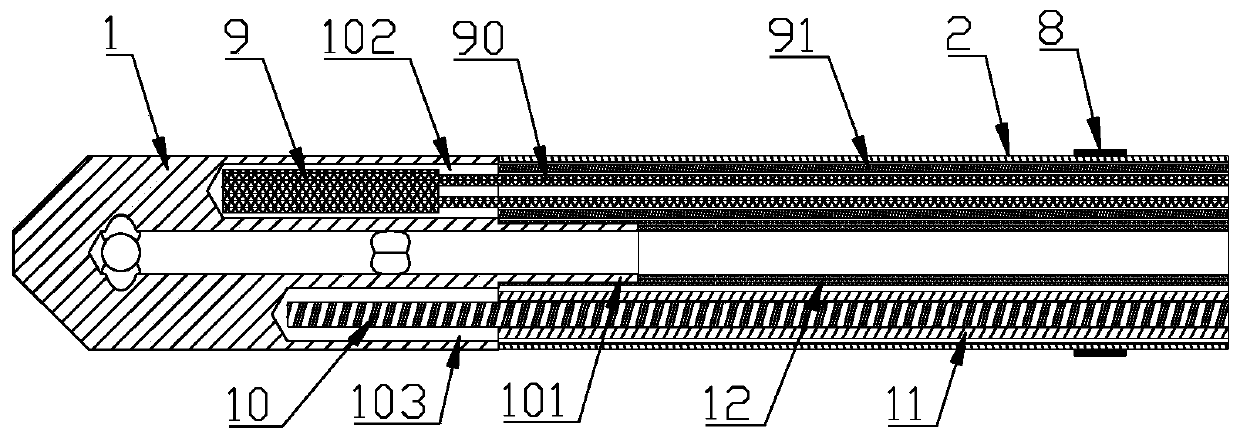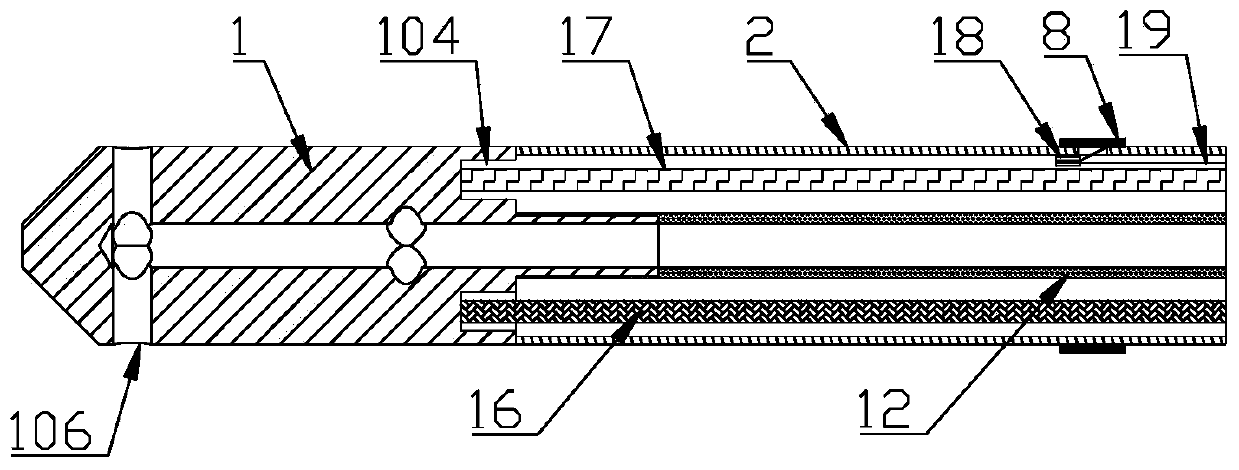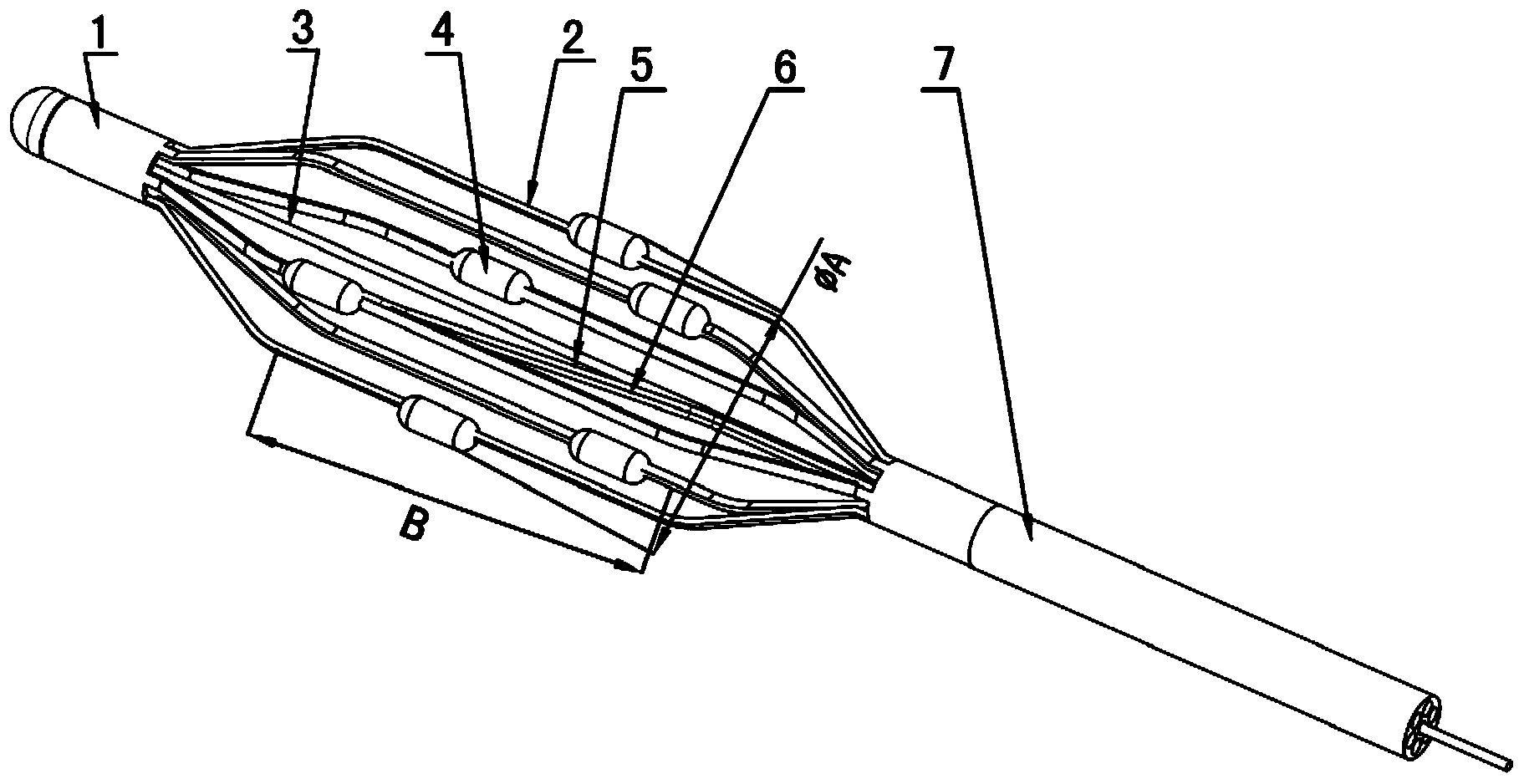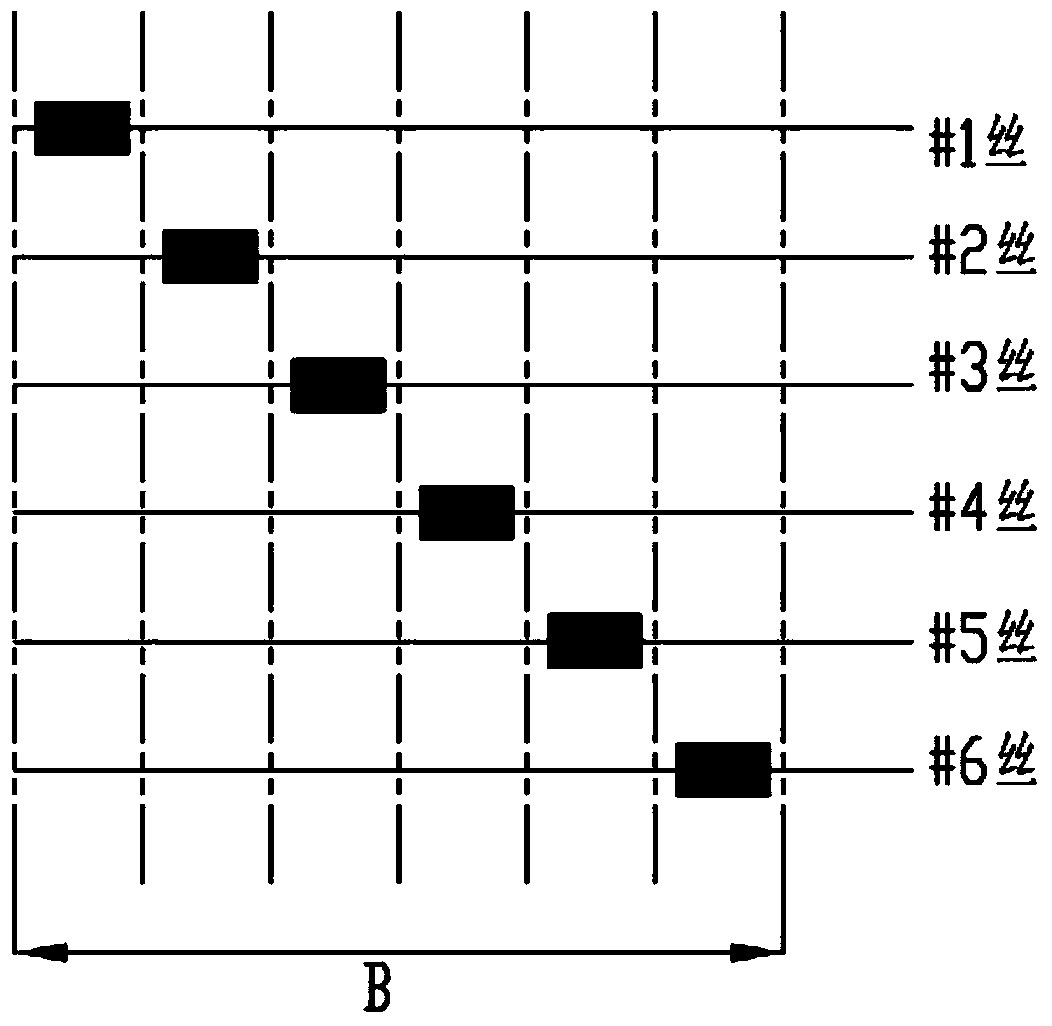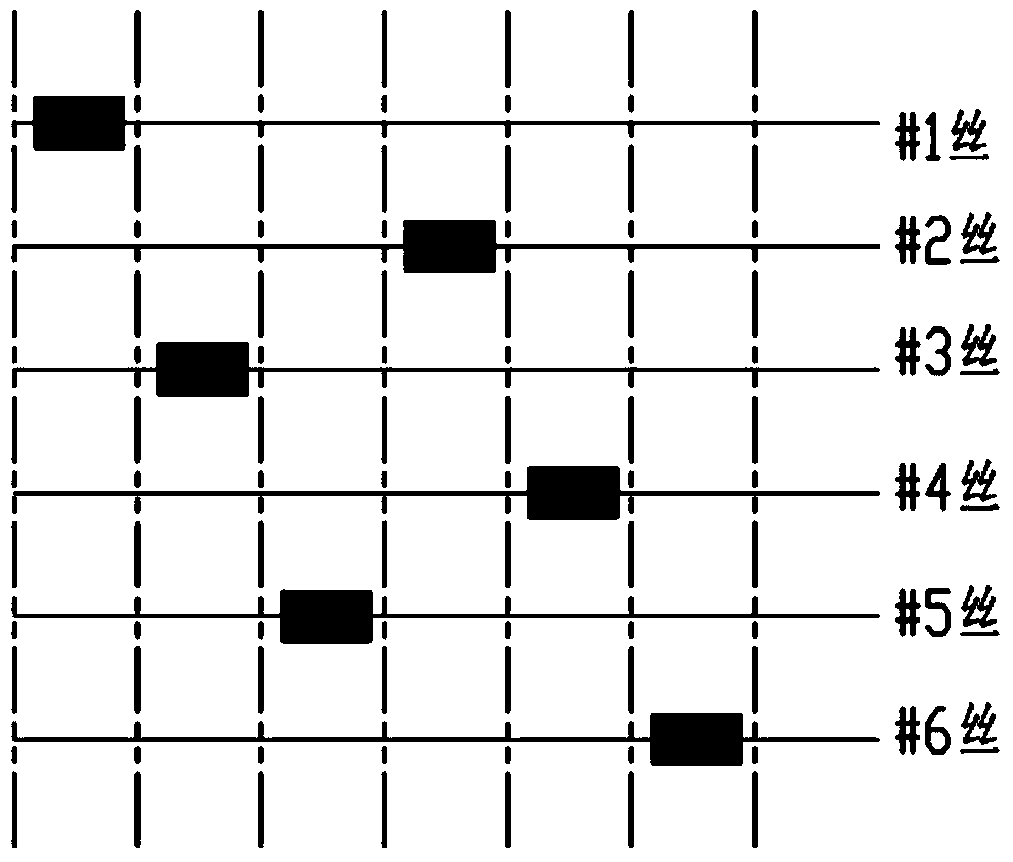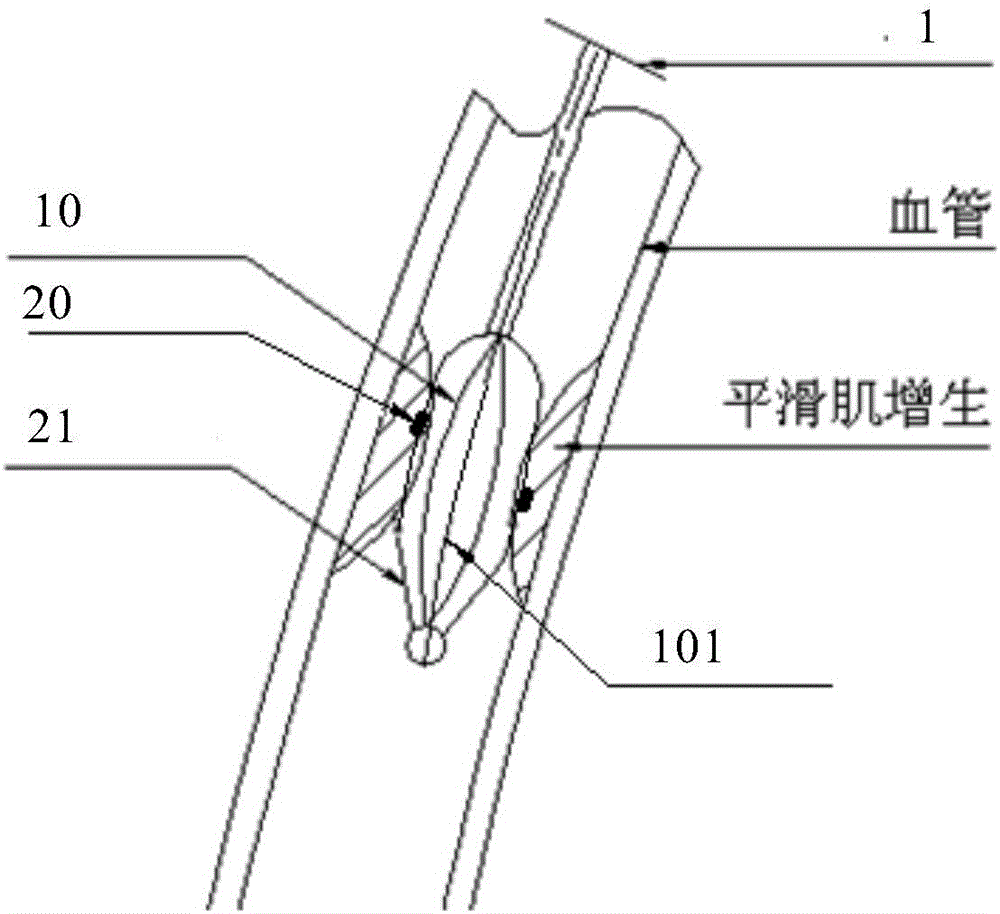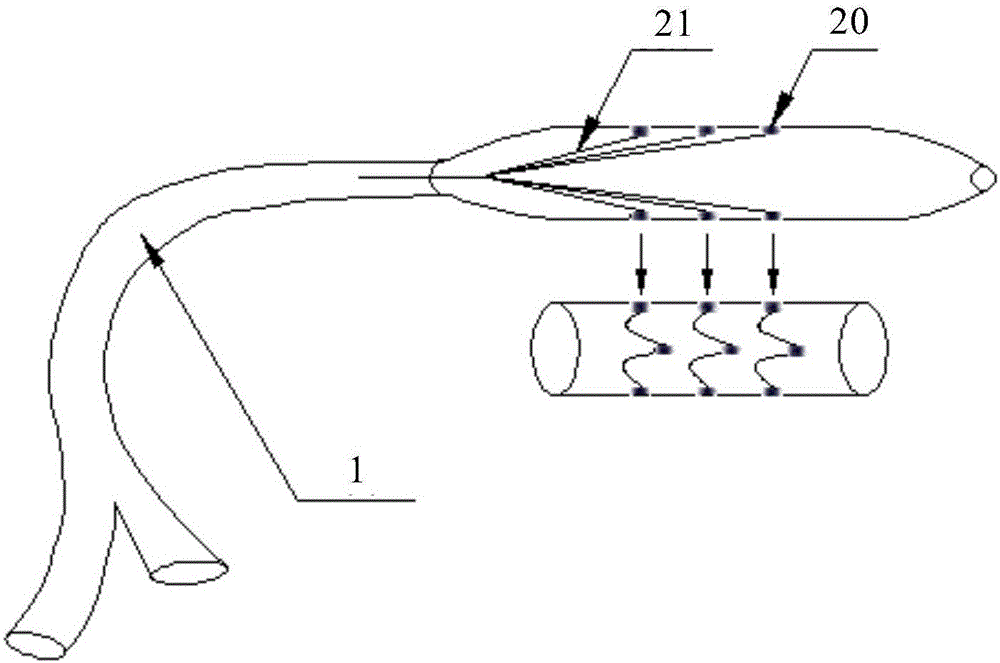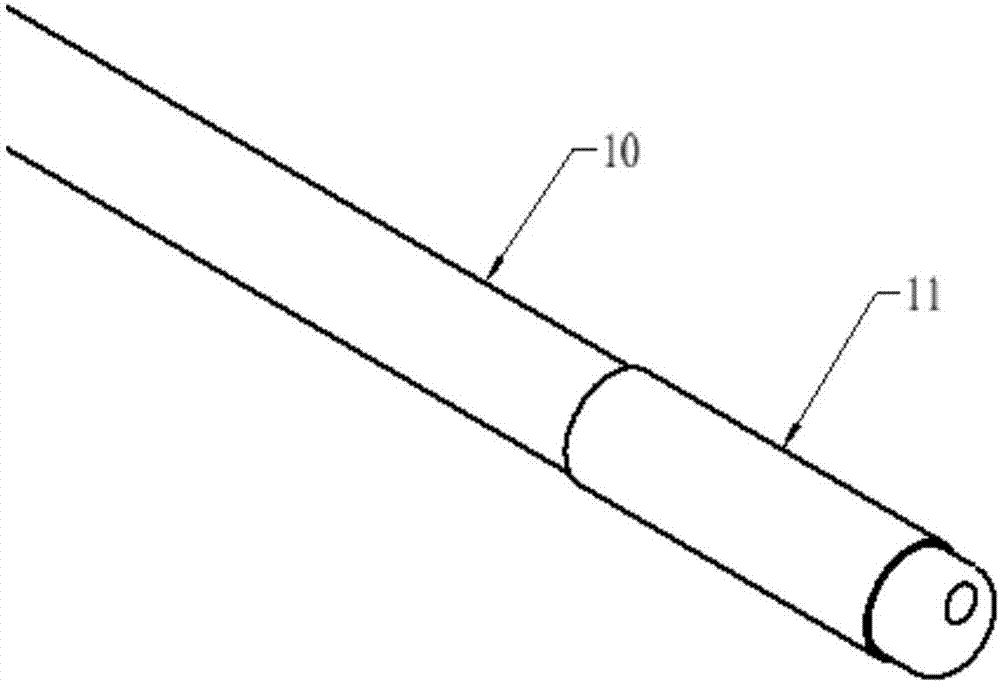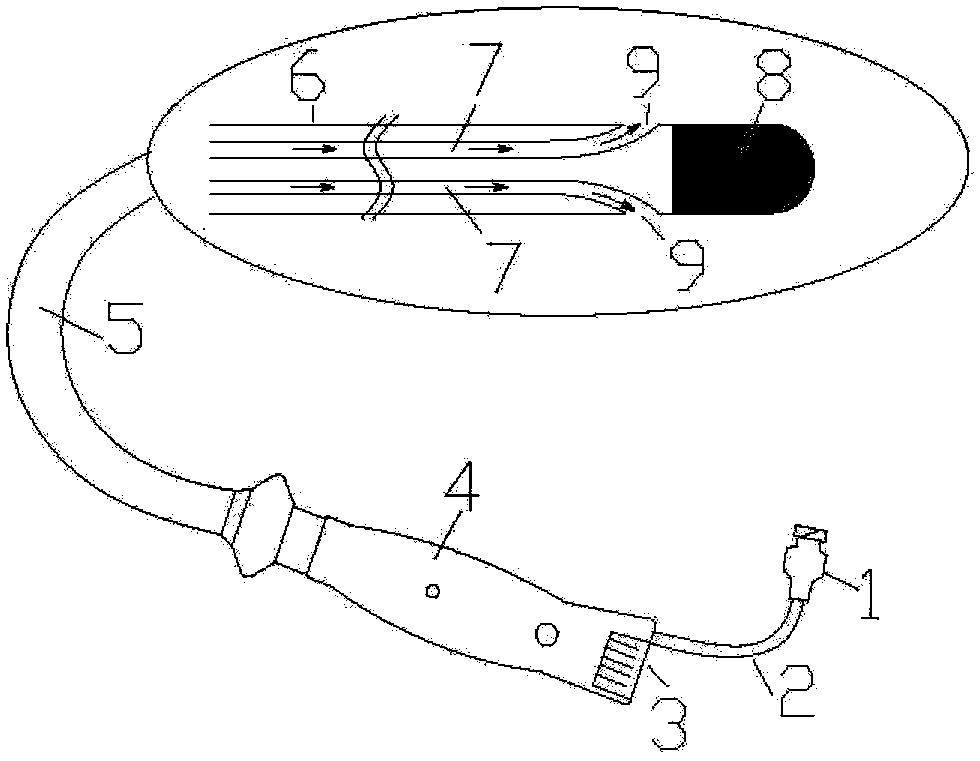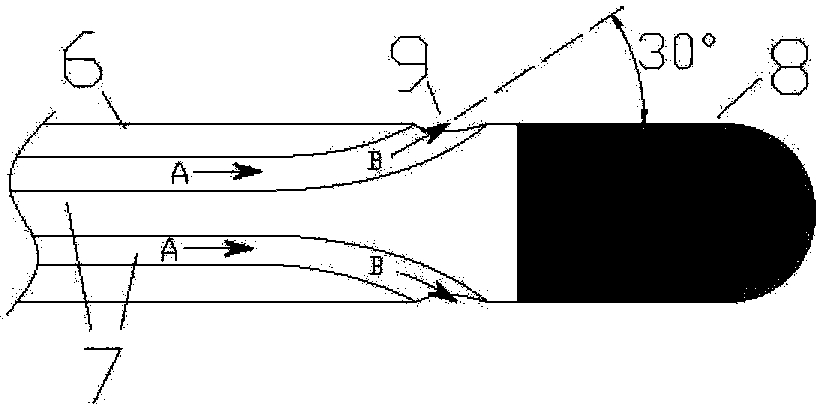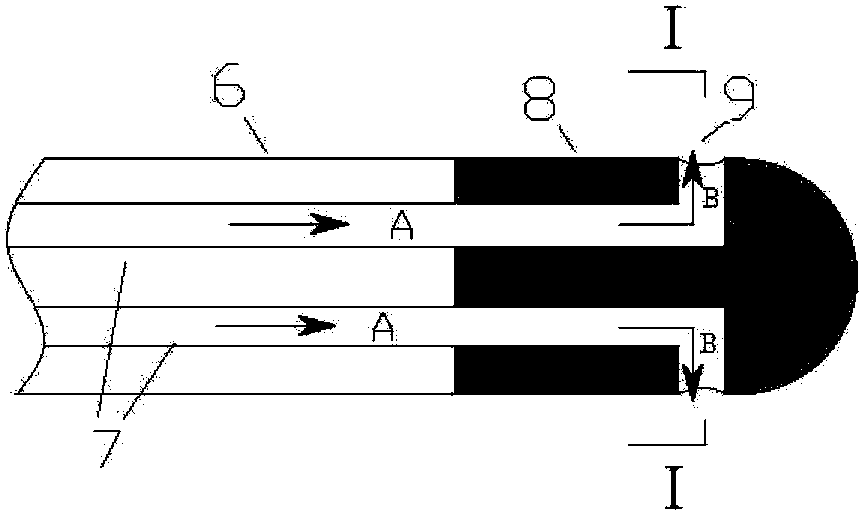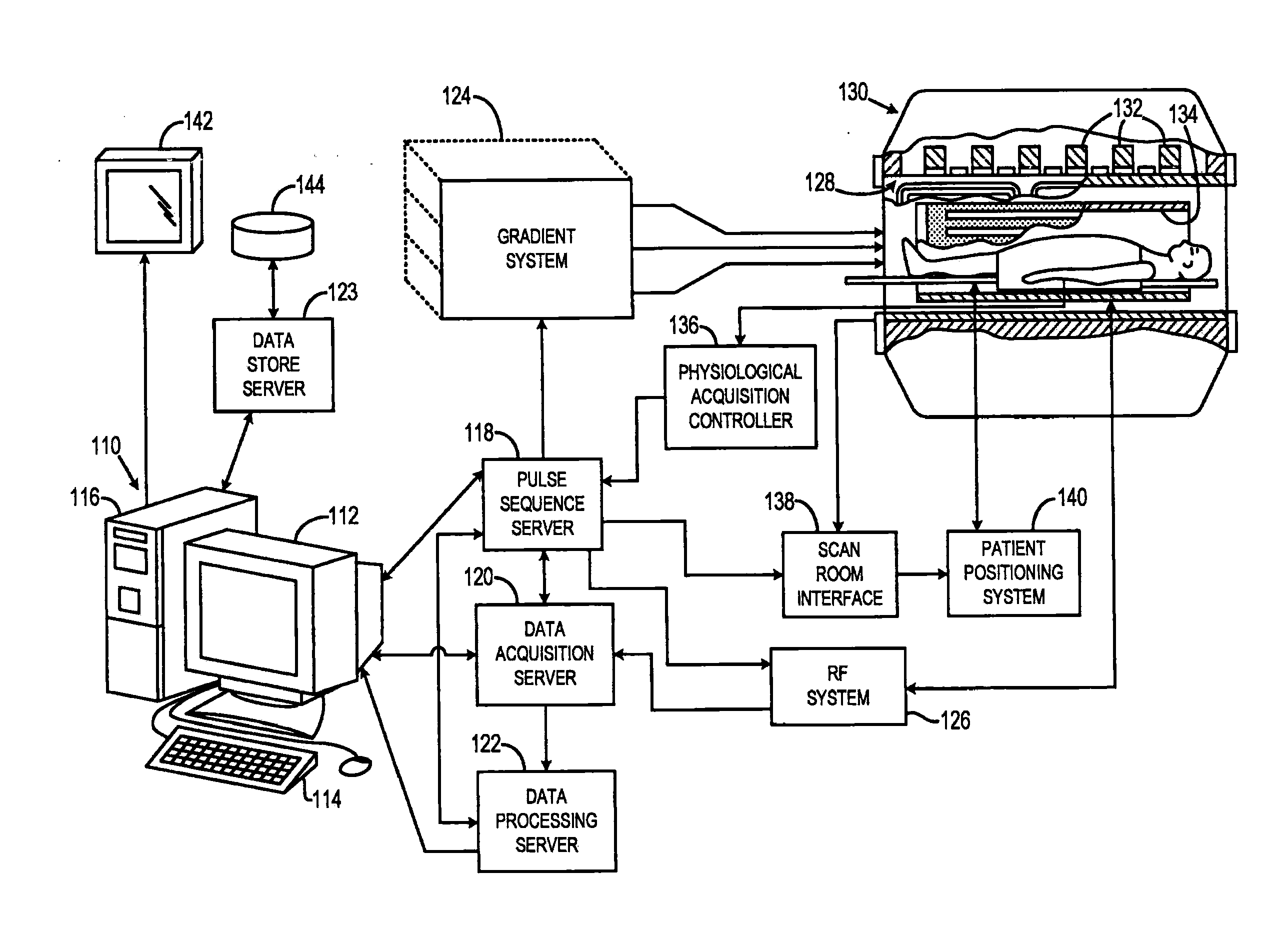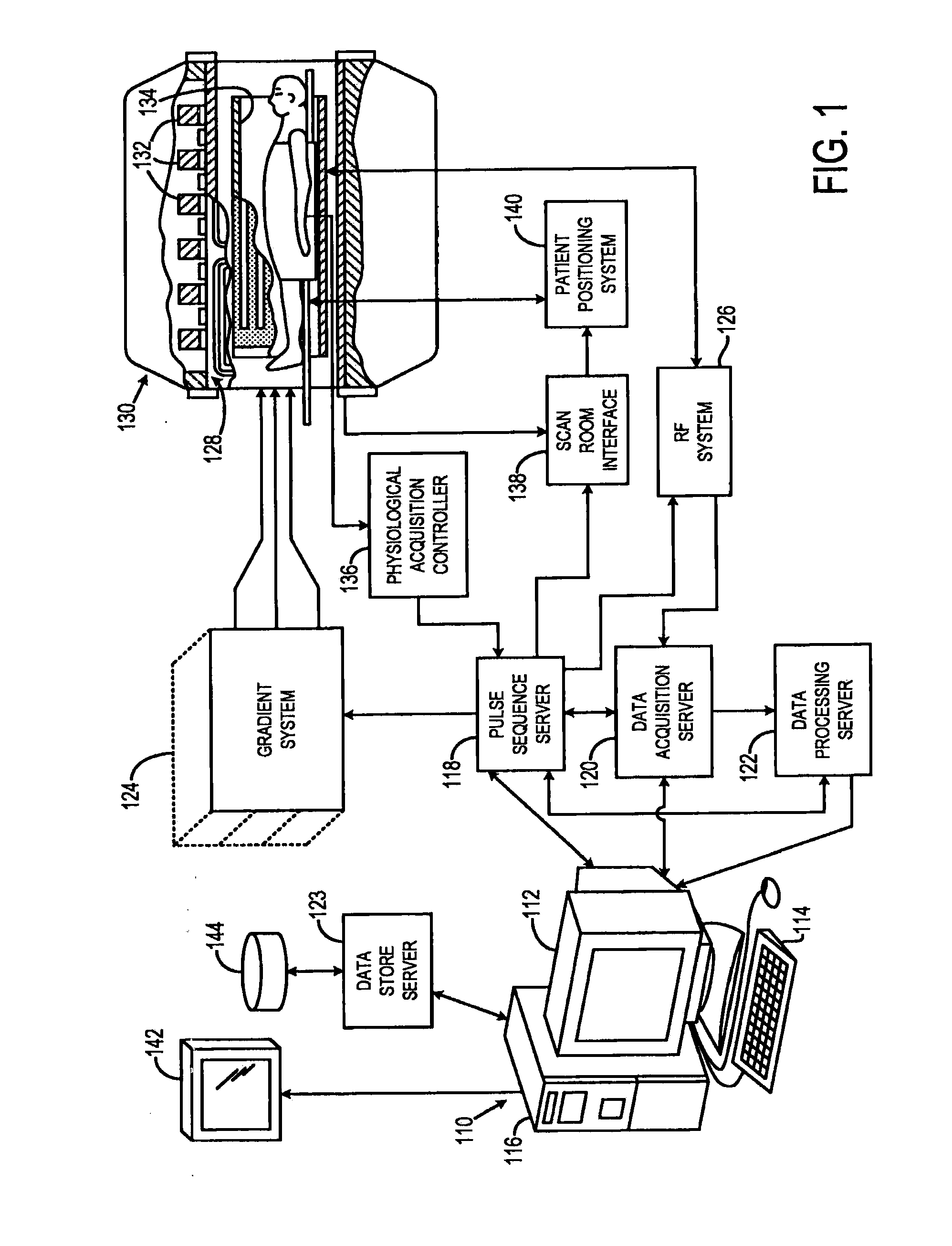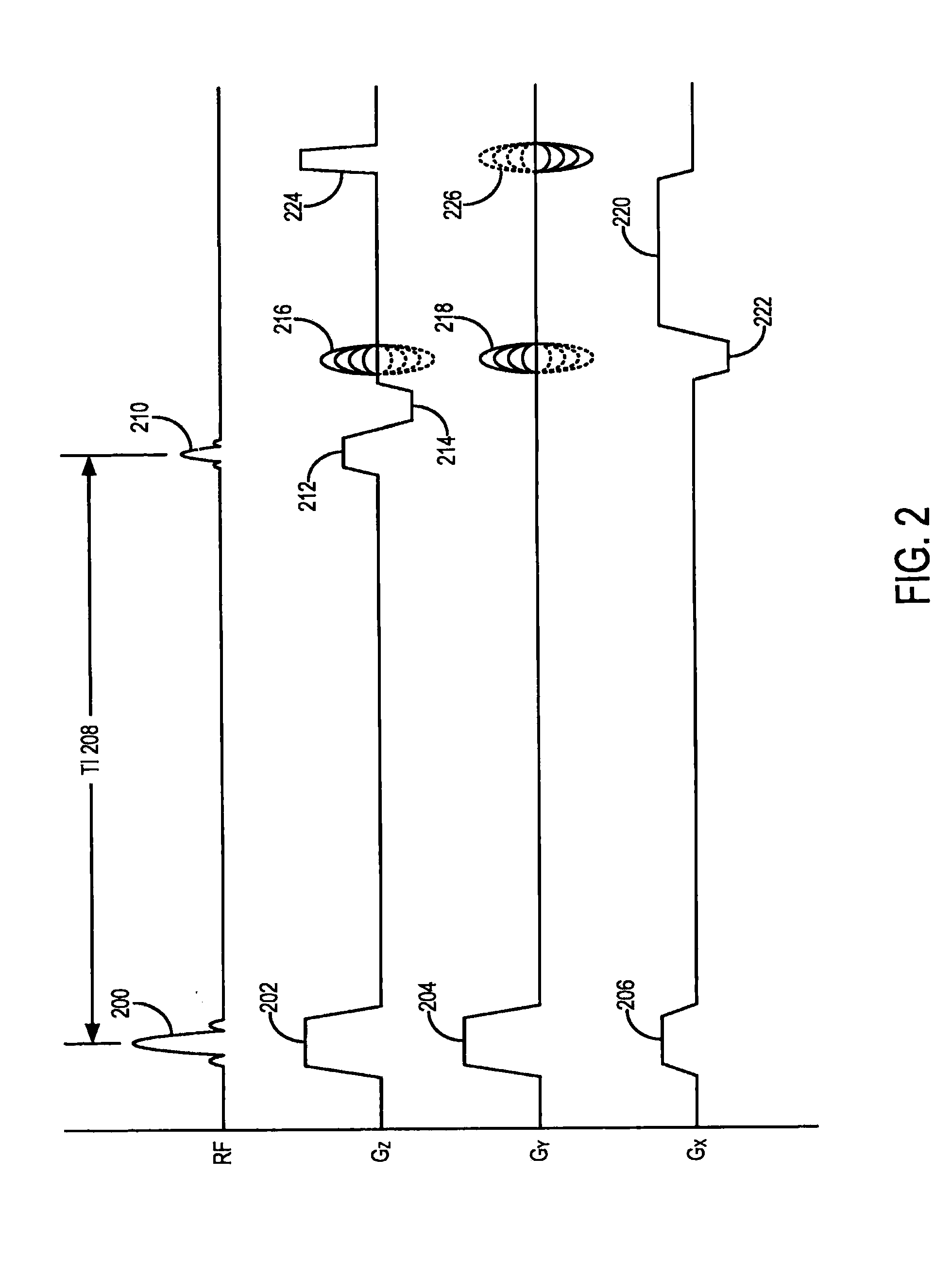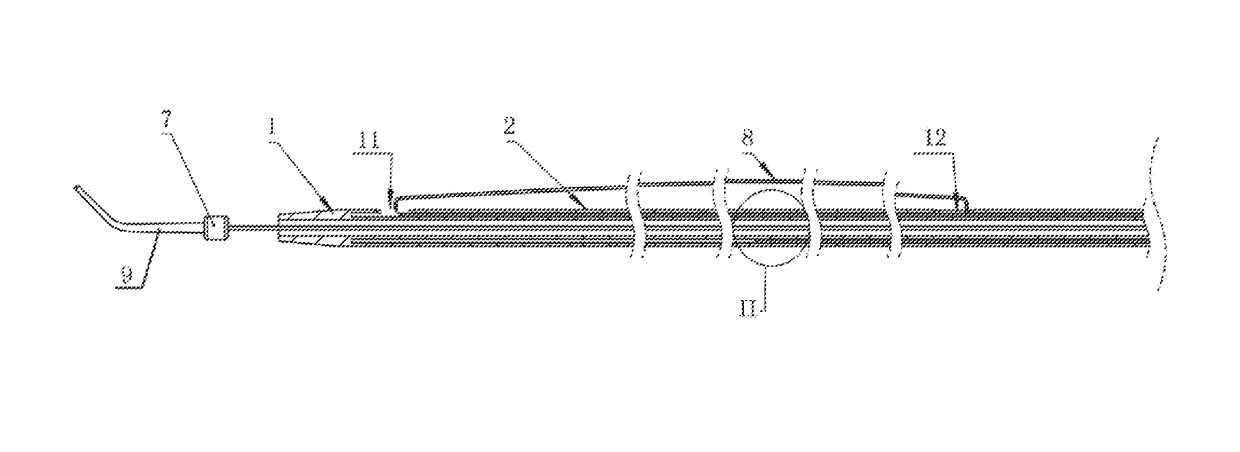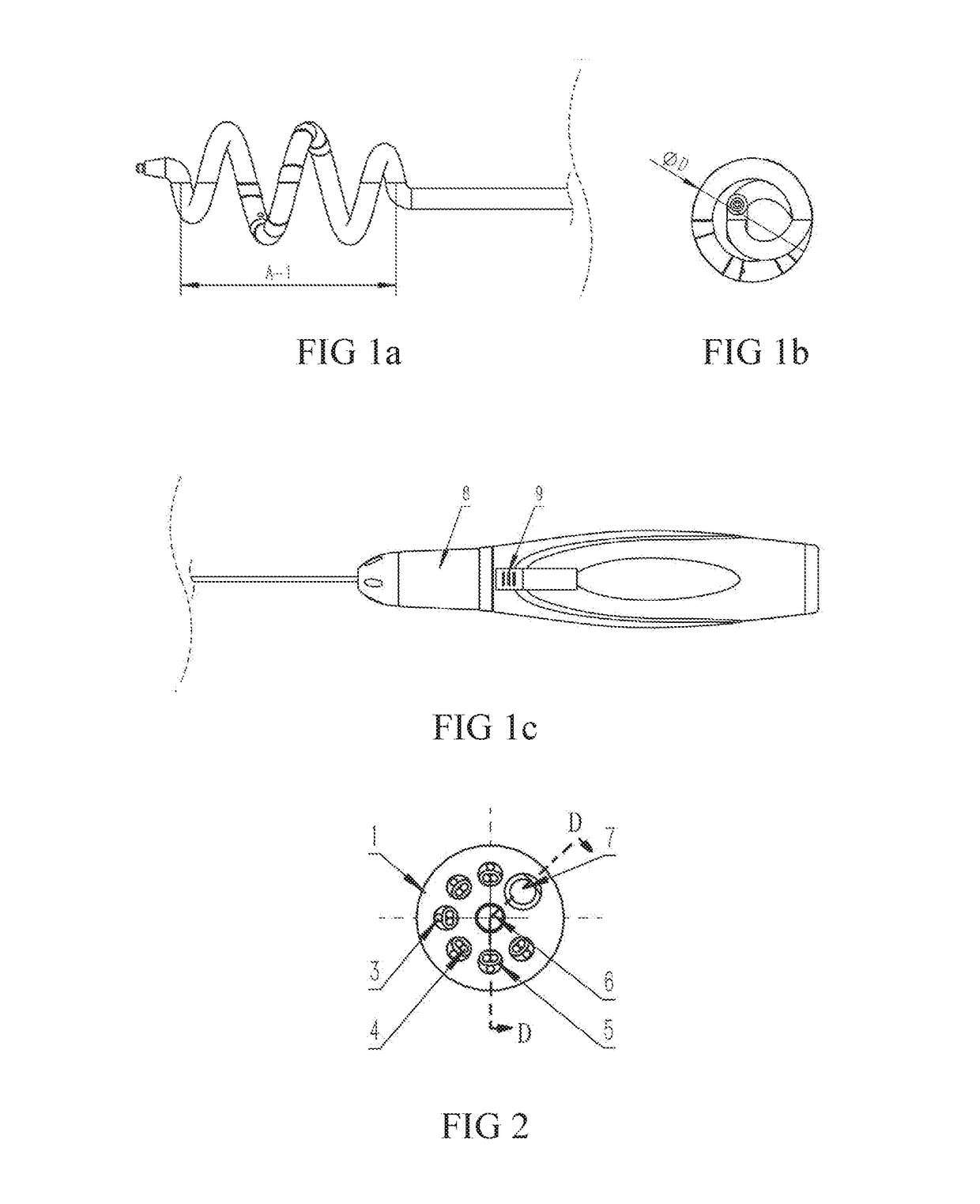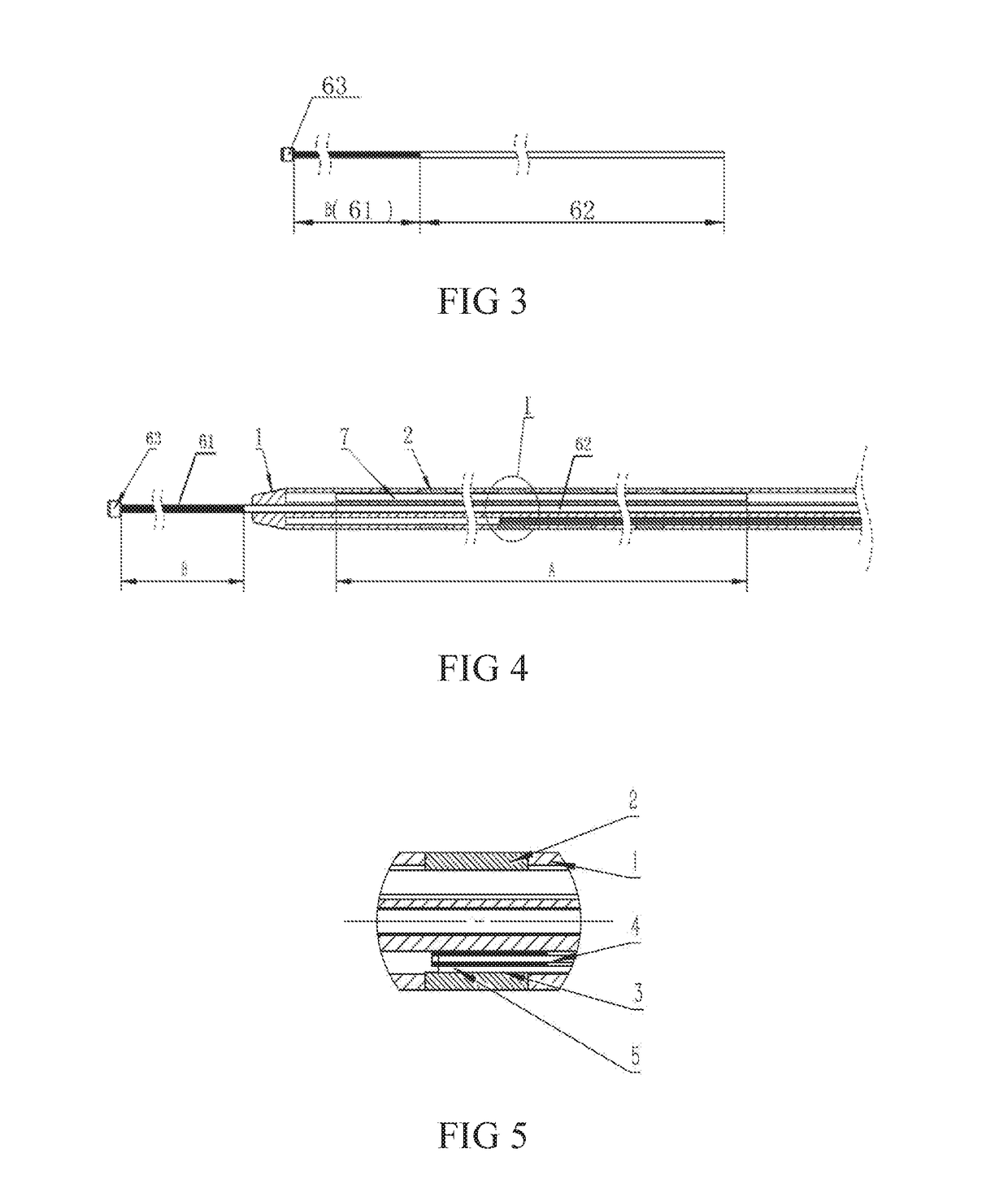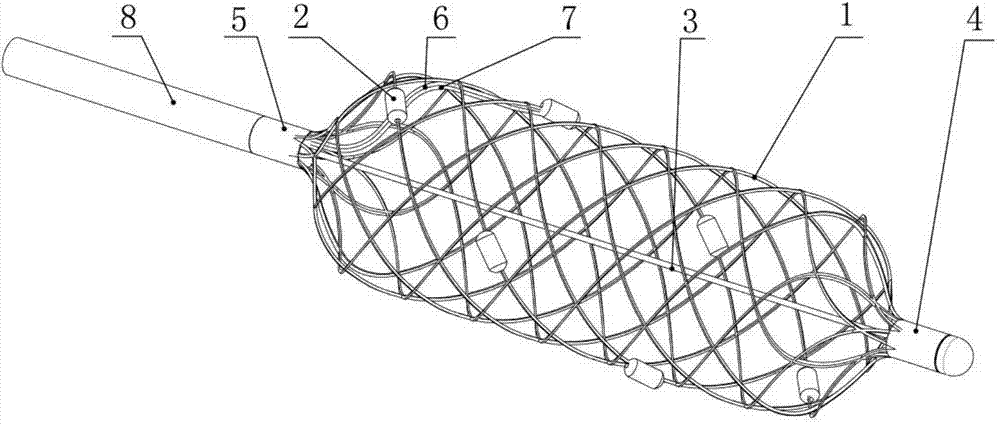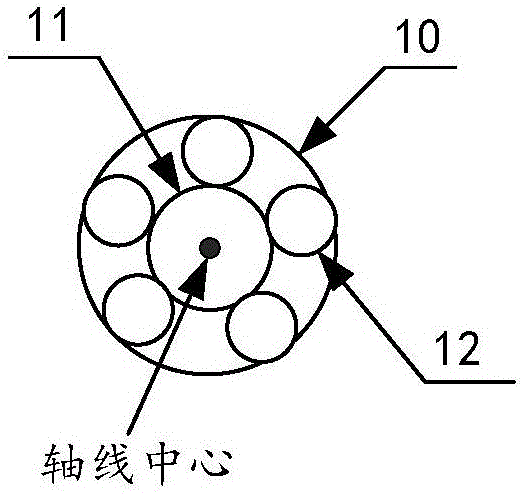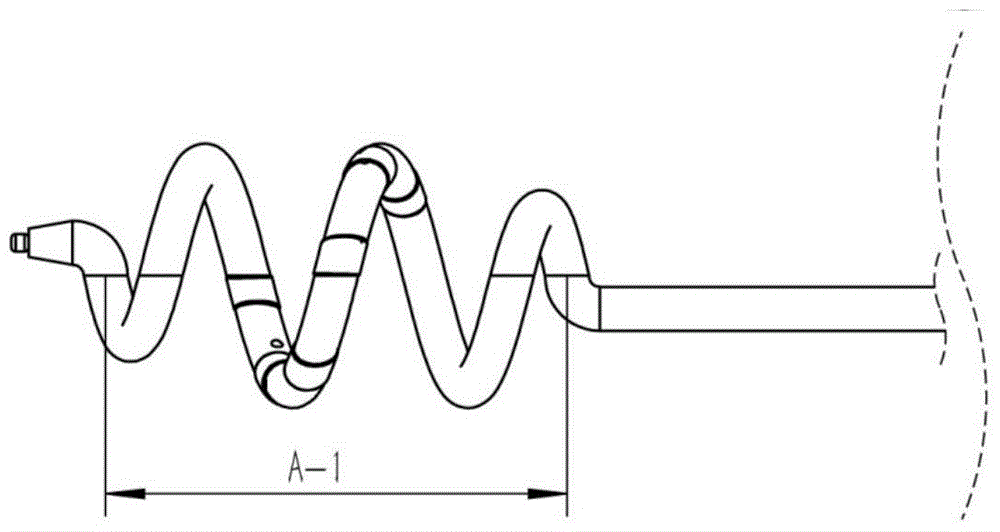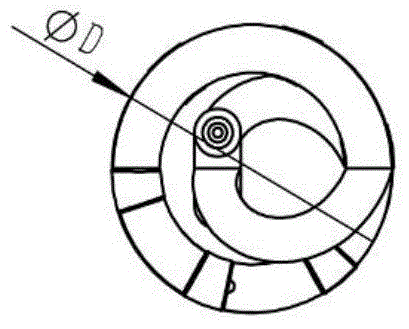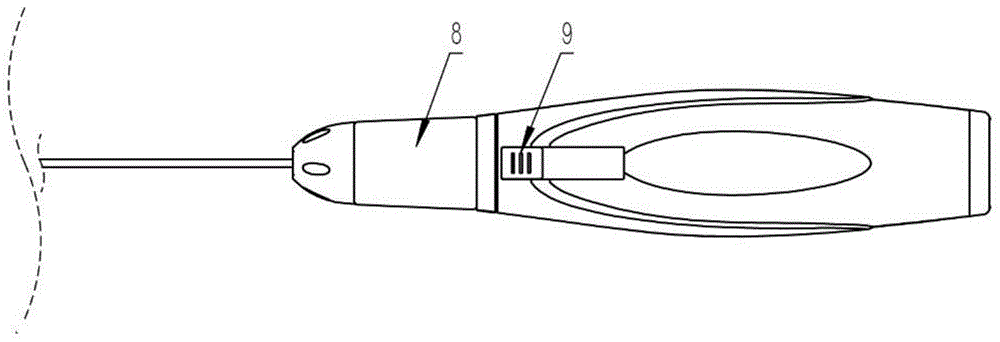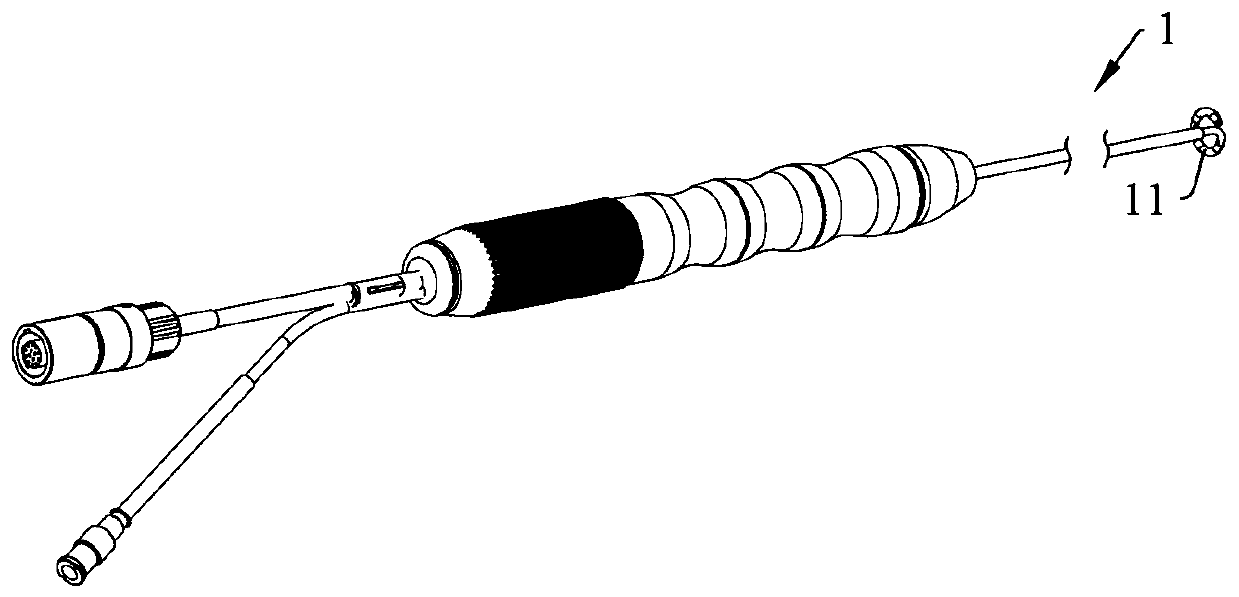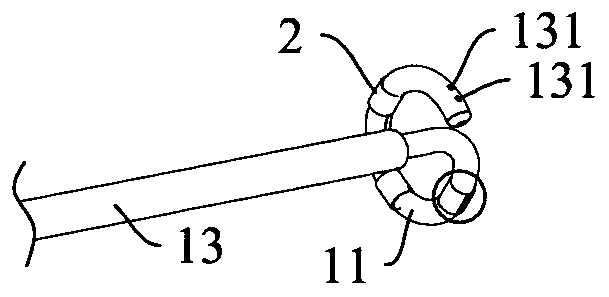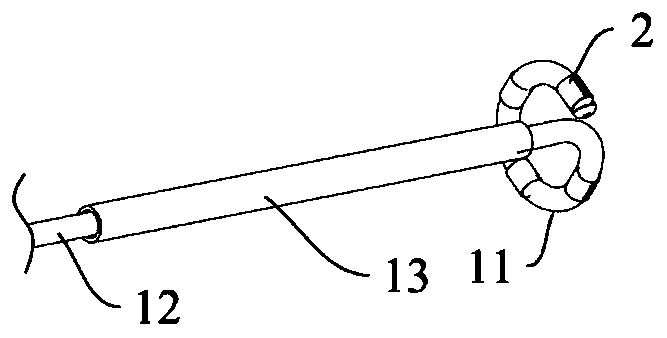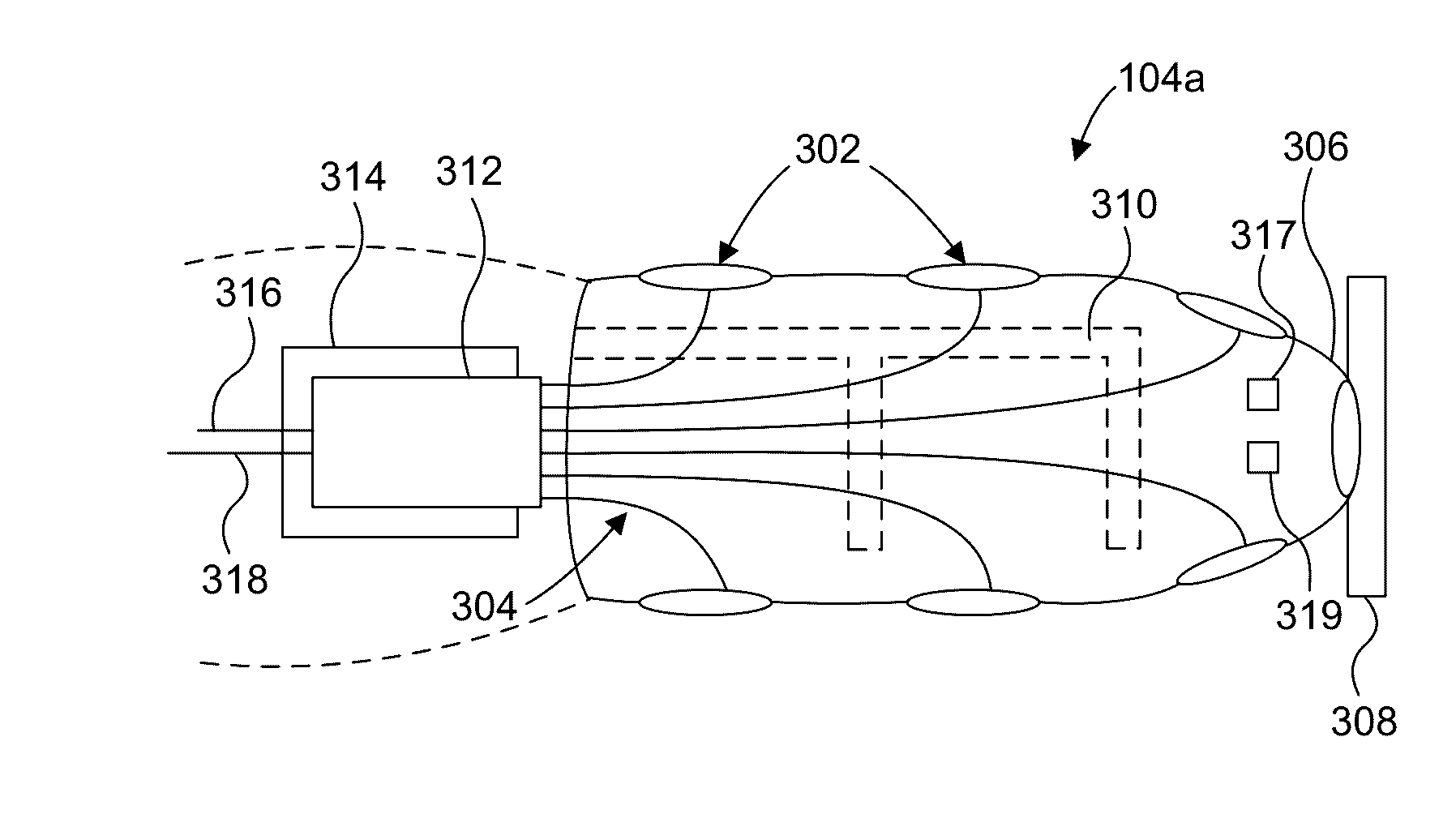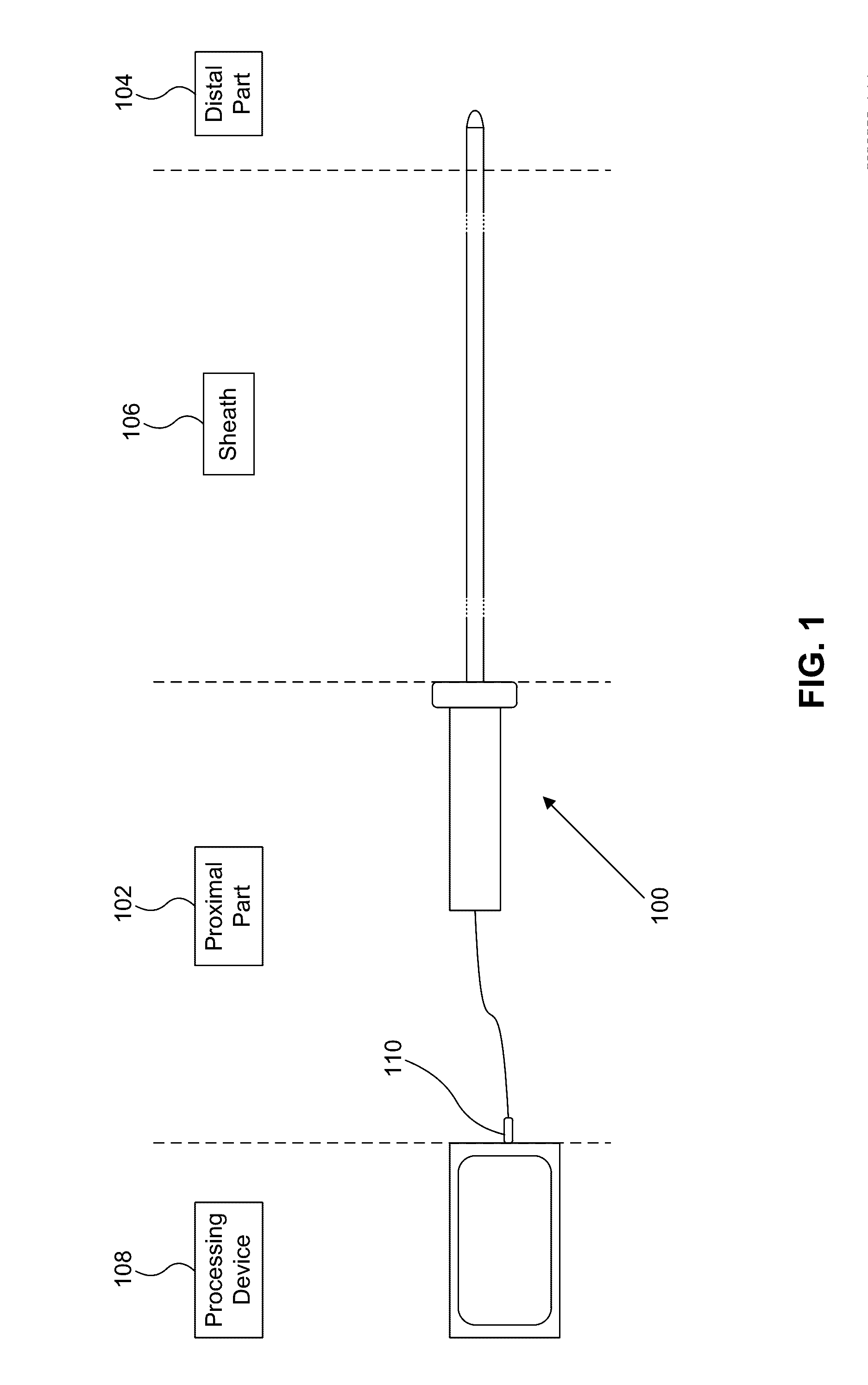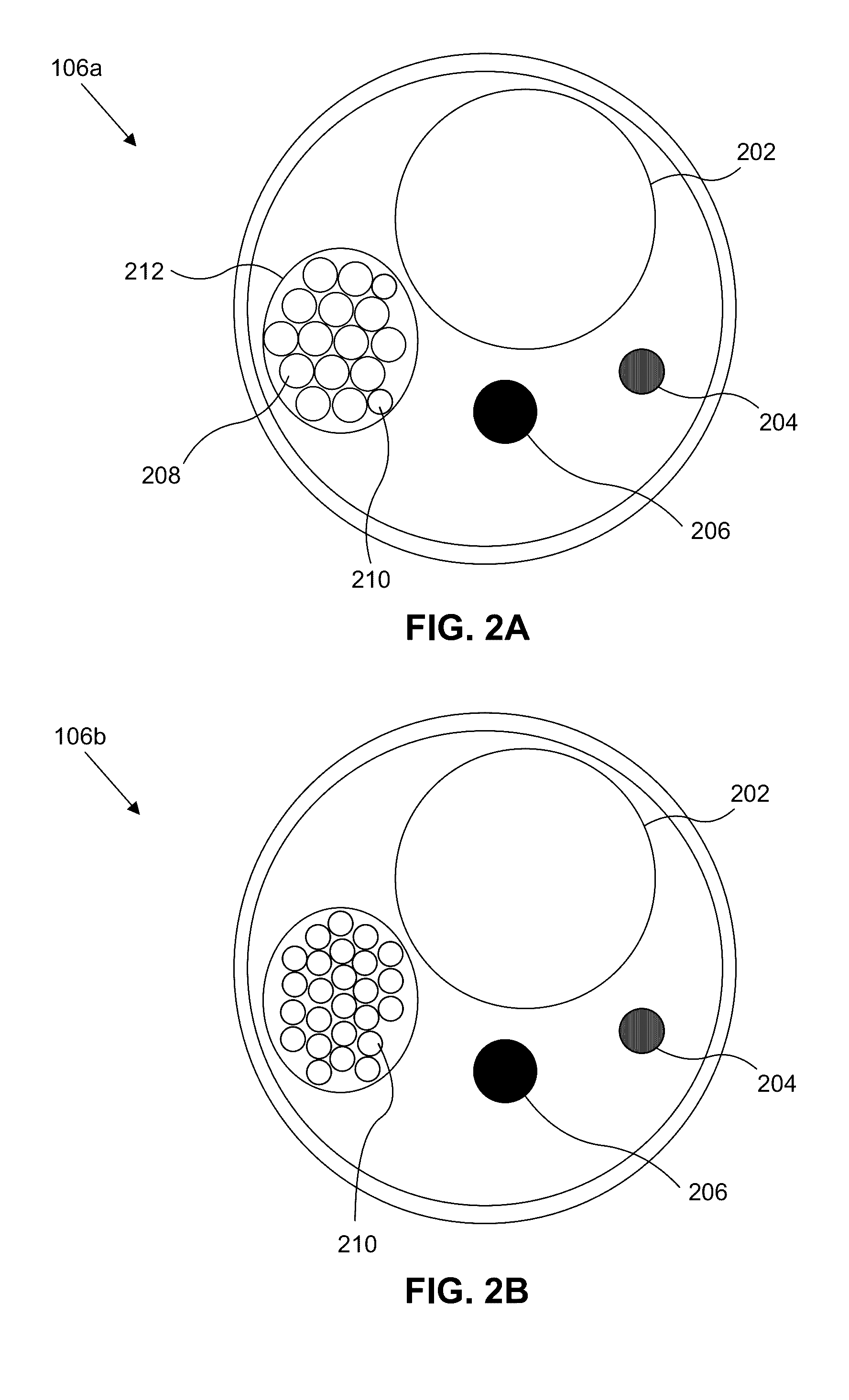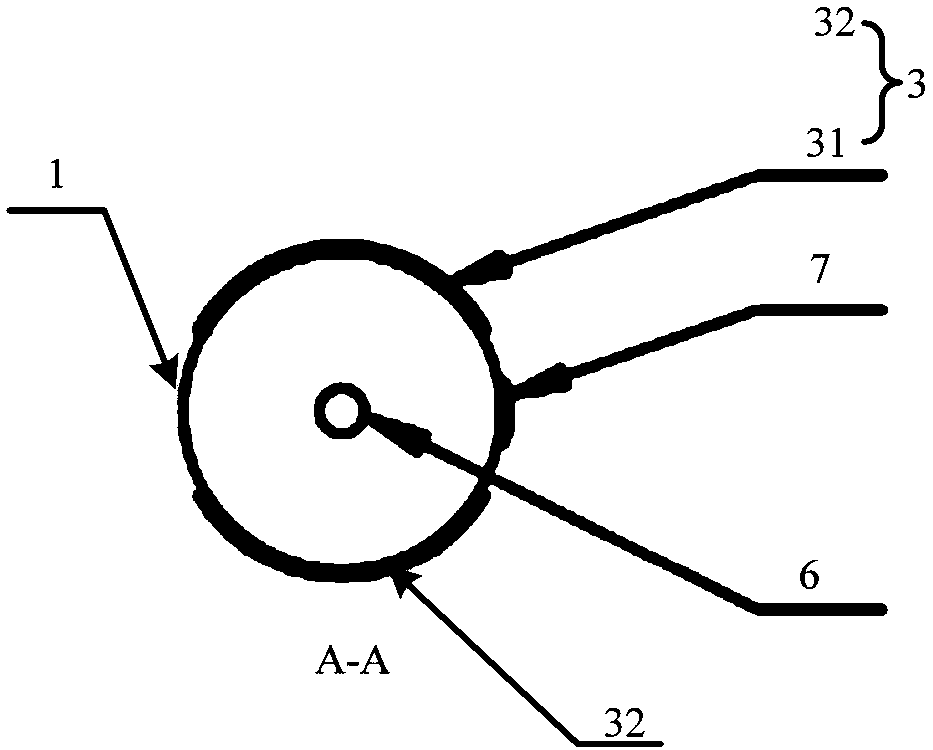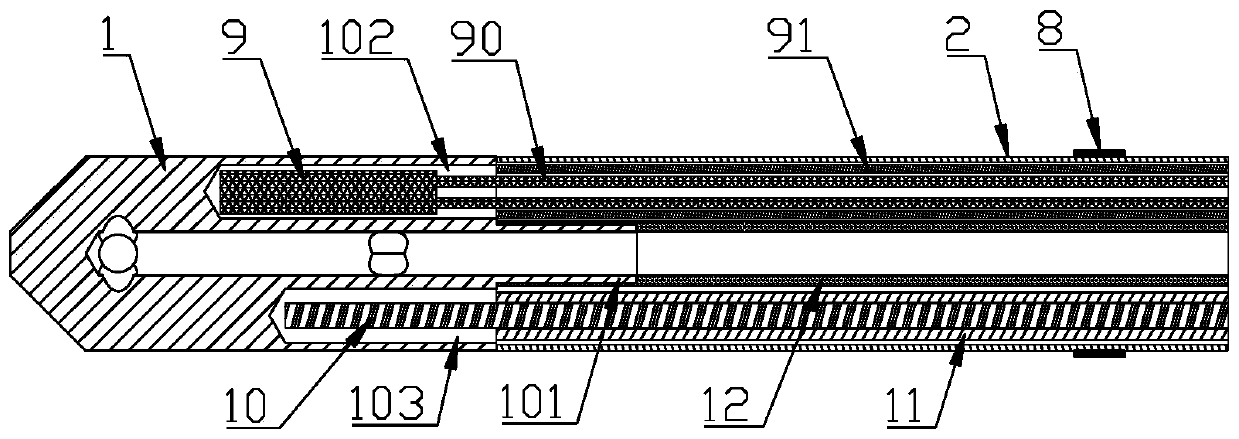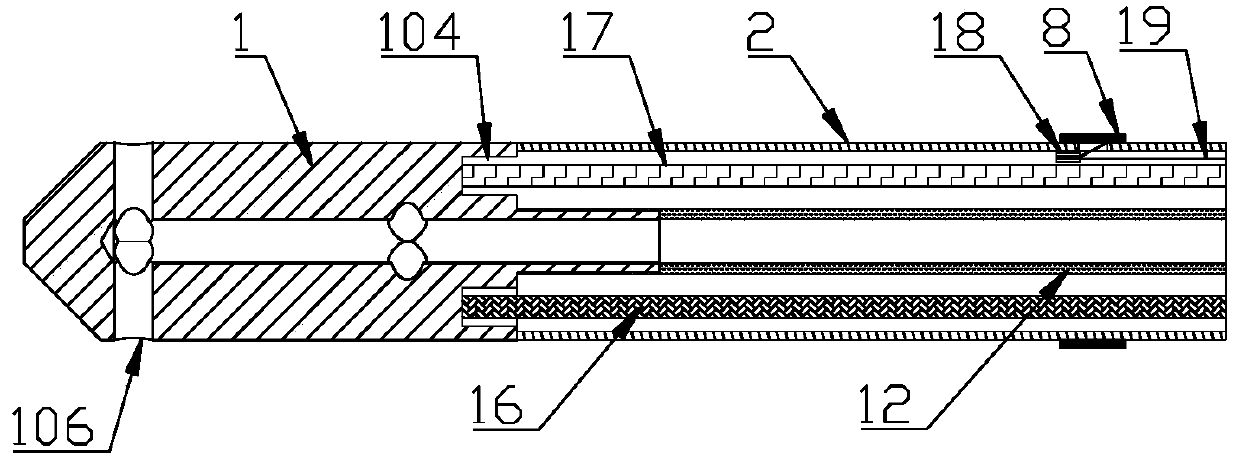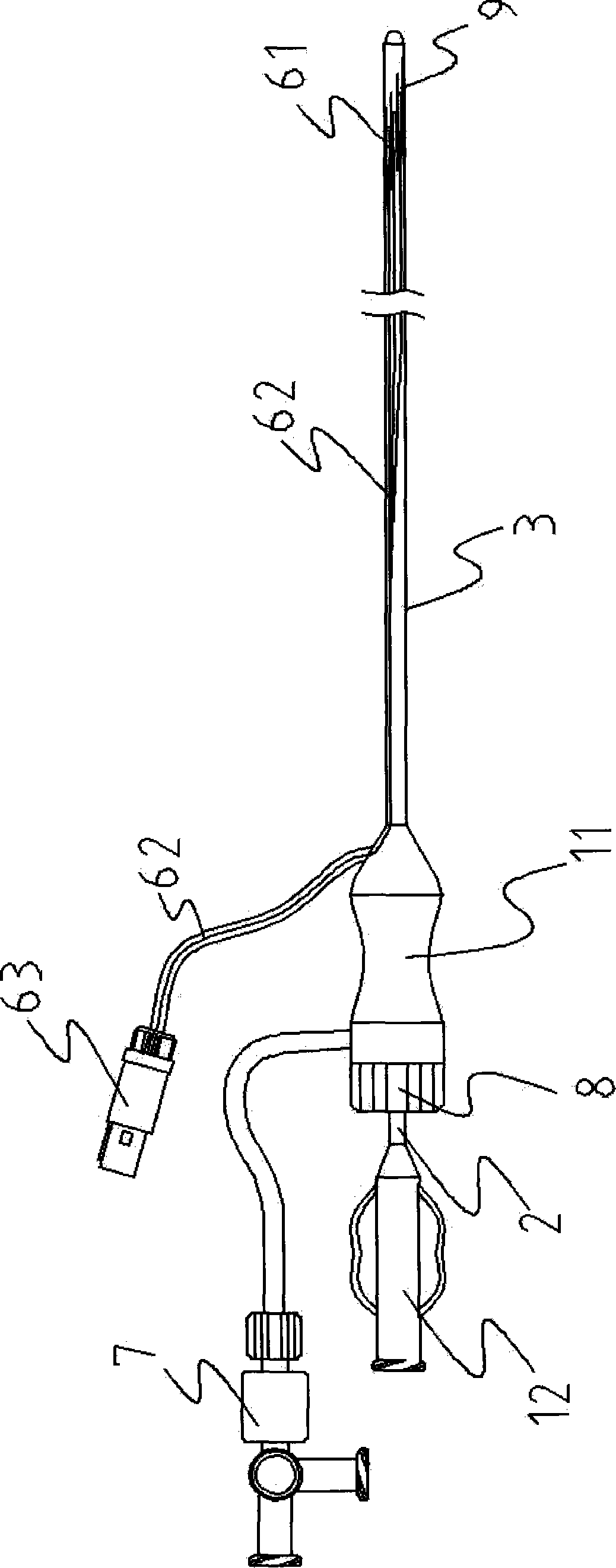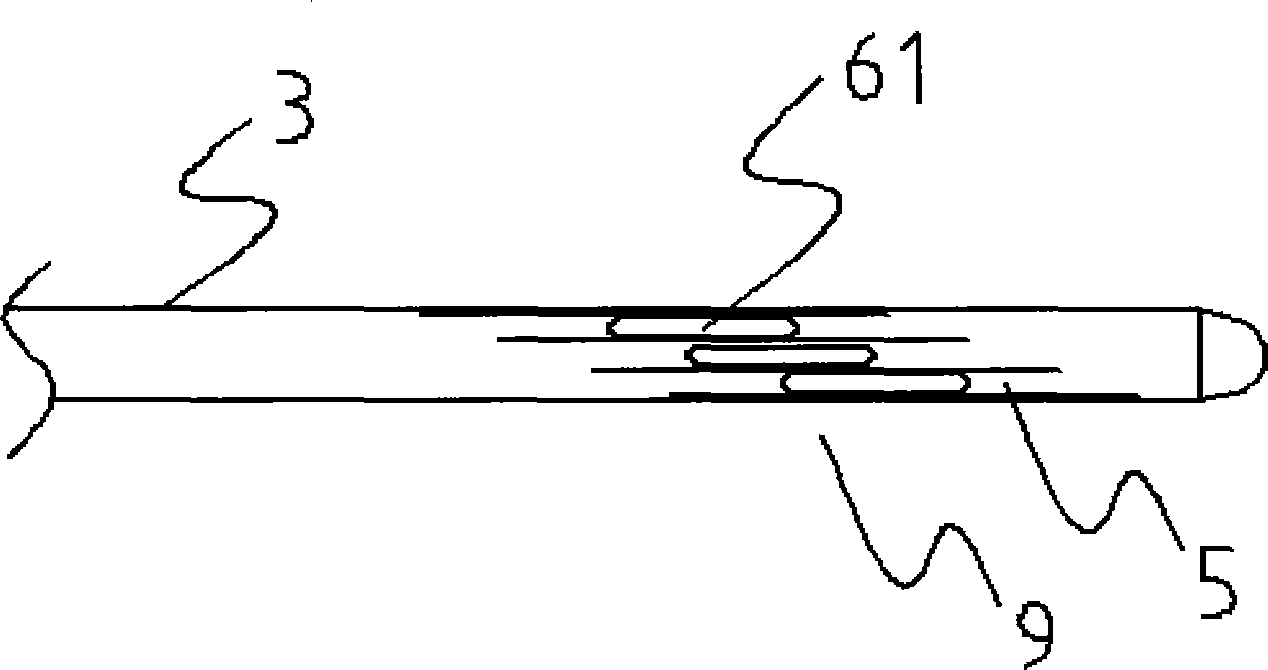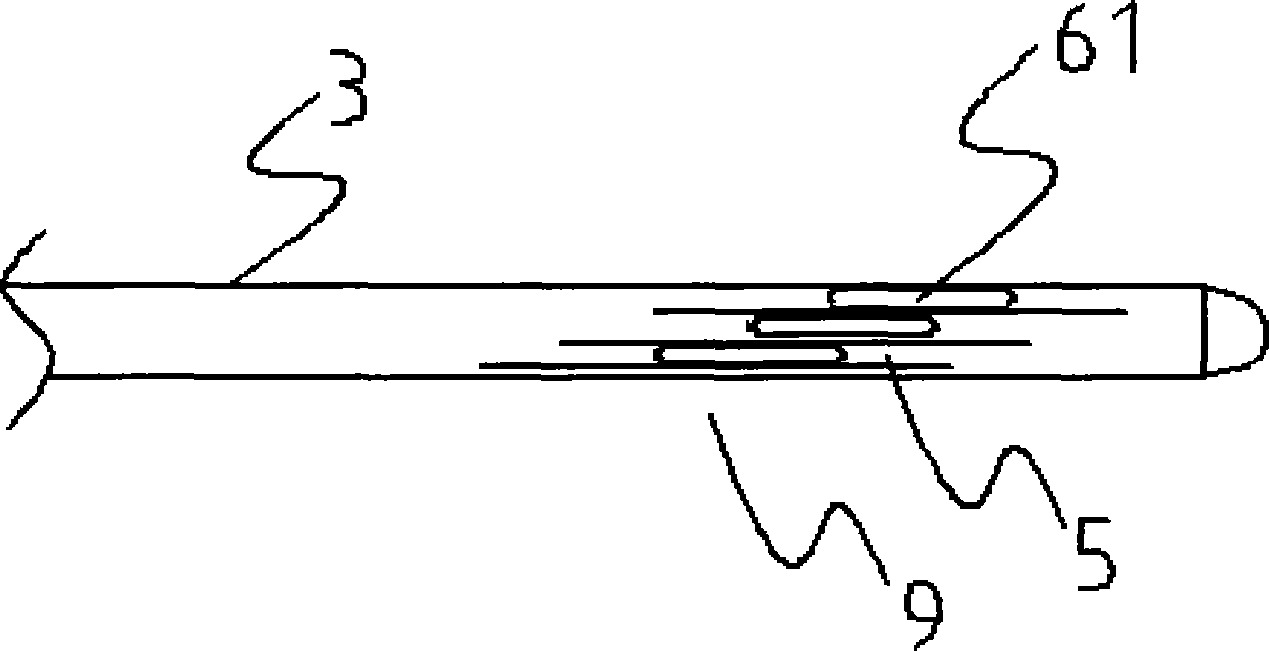Patents
Literature
163 results about "Radiofrequency ablation catheter" patented technology
Efficacy Topic
Property
Owner
Technical Advancement
Application Domain
Technology Topic
Technology Field Word
Patent Country/Region
Patent Type
Patent Status
Application Year
Inventor
During catheter ablation, a long, thin, flexible tube is put into a blood vessel in your arm, groin (upper thigh), or neck. This tube is called an ablation catheter. It's guided into your heart through the blood vessel. A special machine, called a generator, sends energy through the ablation catheter to your heart.
Ablation catheter apparatus with one or more electrodes
InactiveUS20070066972A1Avoid problemsEasy to bendSurgical instruments using microwavesElectrical conductorConductive polymer
A radio frequency (RF) ablation catheter has a flexible distal end portion so that it can be deflected to position an antenna disposed in the distal end portion adjacent a tissue site to be treated. At least one electrical conductor is coupled to the antenna and extends through the catheter to the proximal end of the catheter to a connector at the proximal end of the catheter for connection to a power supply for the RF antenna. At least one electrode is disposed at the distal end portion of the catheter and electrically coupled to the proximal end connector for connection to a monitor. The electrode is of a flexible, electrically conductive material such as conductive polymer material. The electrode may be an electrocardiogram (ECG) electrode.
Owner:MEDWAVE INC
Multipolar open radiofrequency ablation catheter
InactiveCN102274074AAvoid multiple adjustmentsImprove efficiencySurgical instruments for heatingRf ablationBody movement
A multipolar open radiofrequency ablation catheter is used for sympathetic nerve removal in renal arteries, comprising: a control handle; a catheter body, one end of which is fixed to the control handle; an open frame, including at least one tendon that can be elastically deformed, each One end of the rib is fixed to the other end of the catheter tube body, and the rib extends outwardly from the other end of the catheter tube body in a divergent shape, and electrodes are arranged on each rib, and each electrode can be used to extract nerve electrical signals and ablate , each electrode is connected with a wire, the wire extends along the frame, extends through the catheter tube body to the control handle, and is electrically connected to the control handle; the storage sheath, the catheter tube body passes through the storage sheath, and one end of the storage sheath is connected to the control handle The handle; the storage sheath can move relative to the catheter tube body, so that the other end of the storage sheath moves on the open frame, so that the open frame can elastically contract and be stored in the storage sheath and released from the storage sheath. The radiofrequency ablation catheter has the advantages of simple operation, short operation time, accurate and controllable ablation, and the like.
Owner:SHANGHAI MICROPORT EP MEDTECH CO LTD
Radio frequency ablation (RFA) catheter system for denervation of renal sympathetic nerves
InactiveCN102908188APrevent slidingRelieve painSurgical instruments for heatingSympathetic DenervationSympathetic nerve
The invention provides a radio frequency ablation (RFA) catheter system for denervation of sympathetic nerves in renal arteries. The system comprises an ablation catheter, a control handle, a guiding catheter and an ablation generating device and can be provided or not provided with an independent guiding catheter control handle, wherein the ablation catheter is formed by a catheter body section and an ablation section from near end to far end in sequence. The system is characterized in that the front end of the catheter body section also comprises a controllable bending section; the controllable bending section is connected with the control handle by the catheter body section; at least two independent structures are installed on the ablation section; and an ablation head is installed on at least one independent structure. The system can carry out multipoint ablation simultaneously, monitors the ablation effect during operation in real time, and has better mechanical stability.
Owner:THE FIRST AFFILIATED HOSPITAL OF THIRD MILITARY MEDICAL UNIVERSITY OF PLA
Renal artery radiofrequency ablation catheter
ActiveCN102551874ASimple structureEasy to operateSurgical instruments for heatingSympathetic nerveArtery organ
The invention provides a catheter suitable for realizing radiofrequency ablation in blood vessels such as a renal artery and the like. The catheter comprises a control handle (5), a main body section (1), a bendable section (2) and an electrode (4) from a proximal end to a distal end. A draw wire (10) penetrates through the inside of the catheter in an extension manner and is controlled by the control handle (5). The renal artery radiofrequency ablation catheter is characterized by further comprising a tail straight section (3), and the electrode (4) is fixed on the tail straight section (3); and one end of the draw wire is fixed at the distal end of the tail straight section (3), and the draw wire (10) can extend on different sides in the tail straight section (3) and the bendable section (2) along the axis of the catheter. The catheter is applicable to renal arteries with different inner diameters, and renal artery sympathetic nerve radiofrequency ablation operation by the aid of the catheter is simple, safe and reliable.
Owner:上海鸿电医疗科技有限公司
Multi-pole synchronous pulmonary artery radiofrequency ablation catheter
InactiveUS20140180277A1Avoid heating bloodEasy to operateUltrasound therapyInternal electrodesOperative timeLung
A multi-pole synchronous pulmonary artery radiofrequency ablation catheter, wherein an adjustment apparatus is arranged on a control handle; a catheter body is hollow, and a cavity is arranged therein; a lead wire, a temperature sensing wire and a pull wire are arranged in the cavity; one end of the catheter body is flexible, and the flexible end is connected to an annular ring; the annular ring is provided with an electrode group with each electrode connected to the lead wire and temperature sensing wire; the lead wire and temperature sensing wire go through the catheter body and are electrically connected to the control handle. The device uses cold saline perfusion method to protect the vascular intima and possesses advantages of simple operation, short operation time and controllable precise ablation. The device can be used to treat pulmonary hypertension with pulmonary denervation.
Owner:PULNOVO MEDICAL WUXI
Cold brine infusion type radiofrequency ablation catheter
The invention provides a cold brine infusion type radiofrequency ablation catheter which comprises a catheter body, a control handle, an ablation electrode, brine transportation channels and infusion holes, wherein the catheter body comprises a main body section and a flexible section which are used for entering into the body of a patient, the control handle is used for realizing the bending of the flexible section, the ablation electrode is arranged on the far end of the flexible section, the brine transportation channels are used for transporting cold brine, and the infusion holes are used for being connected to the corresponding transportation channels and infusing the cold brine to the ablation electrode and a target part. The cold brine infusion type radiofrequency ablation catheter is characterized by being provided with more than two transportation channels, wherein each transportation channel is corresponding to at least one infusion hole.
Owner:SHANGHAI MICROPORT EP MEDTECH CO LTD
Radiofrequency ablation catheter having meshed tubular stent structure and an apparatus thereof
InactiveUS20170224415A1Good flexibilityNot causing excessive ablationSurgical instruments for heatingMedicineInsertion stent
A radiofrequency ablation catheter having a meshed tubular stent structure and an apparatus thereof, include a meshed tubular stent disposed at a front end of the catheter. The meshed tubular stent comprises and including a meshed tube (1). Both ends of the meshed tube are tapered to form a distal end and a proximal end of the meshed tubular stent. The intermediate segment of the meshed tubular stent has a contracted state and an expanded state. One or more electrodes (2) are fixed onto the intermediate segment. The radiofrequency ablation catheter has improved flexibility and provides great coverage for the blood vessels with different thicknesses and curves. When the meshed tubular stent expands in the blood vessels having different thicknesses of 4-12 mm, all of the electrodes (2) contact the walls. Moreover, when the meshed tubular stent expands in the curved blood vessels, all of the electrodes are ensured to contact the walls.
Owner:SHANGHAI GOLDEN LEAF MED TEC
Bidirectionally controllable saline-perfusion renal artery radiofrequency ablation catheter
InactiveCN102688090AIncrease temperatureAvoid damageCatheterSurgical instruments for heatingElectrical impedancePerfusion
The invention discloses a bidirectionally controllable saline-perfusion renal artery radiofrequency ablation catheter. The catheter comprises an ablation electrode tip, a cannula, and a control handle provided with a control valve connected successively. The ablation electrode tip or the cannula is provided with a saline infusion hole. Two sides of the rear end of the ablation electrode tip are connected with two traction filaments. A fixed pulley is arranged in the control handle. The two traction filaments are wound around the fixed pulley and then connected with the control valve. The control valve of the invention can control the bidirectional bending of the ablation electrode tip. The ablation electrode tip can enter a distorted or angled renal artery without catheter rotation. Besides, a bidirectional control mode can guarantee a good adherence to a blood vessel wall in a multipoint ablation process of the ablation electrode tip, and therefore has an advantage of strong control performance. In addition, continuous saline perfusion can prevent the ablation electrode tip temperature from being too high, and avoid impedance increase caused by ablation position incrustation, thereby effectively removing the renal artery sympathetic nerve and improving the ablation security.
Owner:殷跃辉
Conduit system with label testing and ablation functions in blood vessels
ActiveCN102462532AAvoid the danger of perforationReduce complicationsDiagnostic recording/measuringSensorsSympathetic nerveCurative effect
The invention discloses a conduit with electric label testing and radiofrequency ablation functions in blood vessels, which is divided into three parts: (1), the pointed part of the conduit can be adhered to a plurality of metal straps; (2), the body part of the conduit is composed of the conduit sheath and internal cores; and (3), the rear part of the conduit is provided with an operational handle. When the metal straps at the pointed part of the conduit are not opened, the conduit is cylindrical so as to enter blood vessels conveniently; when the sheath is fixed and the internal cores are drawn back, the metal straps at the pointed part of the conduit are opened to be adhered to the inner walls of the blood vessels; and the conduit has electric label testing and ablation functions. Whenrenal artery sympathetic nerves are exciting, one or more metal straps at the corresponding part can be tested; and the corresponding metal straps are ablated. After finishing ablating the metal straps, the metal straps are tested so as to observe the ablation effect; and if the ablation is incomplete, the metal straps are repeatedly operated until having exact effect. The conduit system providedin the invention can improve curative effect and reduce treatment complications and operation risk.
Owner:JIANGSU HAIZE MEDICAL TECH DEV
Radiofrequency ablation catheter with optical tissue evaluation
ActiveUS10194981B2Reduce impactDiagnostics using lightDiagnostics using spectroscopyRf ablationMultiplexer
Systems and methods for performing RF ablation while monitoring the procedure using low coherence interferometry (LCI) data are described. A catheter includes a distal section, a proximal section, a multiplexer, and a sheath coupled between the distal section and the proximal section. The distal section includes several interconnected optical ports configured to transmit exposure radiation toward a sample and receive radiation that have been reflected or scattered from the sample. The interconnected optical ports are formed on a substrate having rigid sections and flexible sections arranged around the distal section. A holder maintains the interconnected optical elements in a fixed spatial relationship.
Owner:MEDLUMICS
Irrigated radiofrequency ablation catheter
ActiveCN102266245AReduce the chance of condensationImprove cooling effectSurgical instruments for heatingRf ablationCooling effect
The invention discloses a perfusion radiofrequency ablation catheter, which comprises a catheter body, the catheter body has a distal end, a proximal end and a central cavity, an ablation part is fixed at the distal end of the catheter body, and an ablation part is fixed at the proximal end of the catheter body. A control handle is fixed; the ablation part includes an elastic head-end tube, the elastic head-end tube has a distal end, a proximal end and at least one cavity, and an ablation electrode is arranged at the distal end of the elastic head-end tube; The ablation electrode includes an electrode housing, which includes at least one cavity, and the ablation electrode is provided with a small hole; the perfusion liquid can flow into the cavity of the ablation electrode through the pipeline, and flow out from the small hole; The effective total area of the small holes is smaller than the effective cross-sectional area of the pipeline. The perfusion radiofrequency ablation catheter of the present invention effectively reduces the chance of blood coagulation and improves the cooling effect.
Owner:SYNAPTIC MEDICAL (BEIJING) CO LTD
Guide wire and catheter system for radiofrequency ablation of renal artery sympathetic nerves
ActiveCN103549993AAvoid enteringPrecise cuttingSurgical instruments for heatingRf ablationSympathetic nerve
The invention discloses a guide wire and catheter system for radiofrequency ablation of renal artery sympathetic nerves, and aims to solve the problem that in the prior art, the position of a radiofrequency ablation electrode can not be well adjusted, so that the safe and efficient ablation can not be realized. The guide wire and catheter system comprises a radiofrequency ablation catheter, a guide wire sleeved by the radiofrequency ablation catheter, a loading sheath and a Y-shaped hemostasis valve arranged at the tail end of the radiofrequency ablation catheter, wherein the radiofrequency ablation catheter is sleeved by the loading sheath. By the adoption of the guide wire and catheter system, the bilateral renal artery sympathetic nerve radiofrequency ablation can be realized more accurately, safely and efficiently, and a more excellent catheter solution is provided for patients with hypertension.
Owner:廖申扬
Radiofrequency ablation controlled electrode catheter for renal artery
ActiveCN102743225AMonitor temperatureAvoid damageSurgical instruments for heatingSurgical instruments for irrigation of substancesSurgical operationRf ablation
The invention relates to a medical apparatus of interventional therapy, and particularly relates to a radiofrequency ablation electrode catheter used for curing refractoriness hypertension through per cutem and blood vessel to enter into renal artery. According to the invention, the technical problem to be solved is that a sympathetic nerve on the arterial canal of the renal artery can be effectively removed, so that damages to the inner wall of the vessel can be reduced. According to the invention, the radiofrequency ablation controlled electrode catheter for renal artery is provided with a catheter body, wherein an electrode is connected with a far-end of the catheter body; a control handle is connected with a near-end of the catheter body; an ablation electrode and a monitoring electrode are arranged at the far-end of the catheter body along the axis of the catheter body; and an interval is arranged between the ablation electrode and the monitoring electrode. Compared with prior art, the invention is in characterized in that no fill orifice is arranged on the ablation electrode; the monitoring electrode adjoins the ablation electrode through the interval; the temperature of the sympathetic nerve which is ablated is monitored during the ablation process, so as to judge a clinical treatment required value is reached; also, the conduction of sympathetic nerve signal acquired through monitoring the electrodes, and the comparison of conduction waveforms of the sympathetic nerve before and after ablation, can provide supplementary means for judging if a surgical operation end is finished or not.
Owner:APT MEDICAL INC
Pulmonary artery ablation catheter
InactiveUS20150057599A1Successful treatmentReduce pressureUltrasound therapyElectrotherapyBlood vesselOperative time
A multi-pole synchronous pulmonary artery radiofrequency ablation catheter, wherein an adjustment apparatus is arranged on a control handle; a catheter body is hollow, and a cavity is arranged therein; a lead wire, a temperature sensing wire and a pull wire are arranged in the cavity; one end of the catheter body is flexible, and the flexible end is connected to an annular ring; the other end of the catheter body is connected to the control handle; one end of the pull wire is connected to the flexible end, and the other end of the pull wire is connected to the adjustment apparatus on the control handle, the tension of the pull wire is adjusted through the adjustment apparatus to achieve radian control of the flexible end; a shape memory wire is arranged in the annular ring, one end of the shape memory wire extends to the end of the annular ring and the other end of the shape memory wire passes through the root of the annular ring and is fixed on the flexible end of the catheter body; the annular ring is provided with an electrode group with each electrode connected to the lead wire and temperature sensing wire; the lead wire and temperature sensing wire go through the catheter body and are electrically connected to the control handle. The device uses cold saline perfusion method to protect the vascular intima and possesses advantages of simple operation, short operation time and controllable precise ablation. The device can be used to treat pulmonary hypertension with pulmonary denervation.
Owner:PULNOVO MEDICAL WUXI
RF Ablation Catheter with Side-Eye Infrared Imager
InactiveUS20080287942A1Avoid possibilityLess whipDiagnosticsSurgical instruments for heatingRf ablationThrombus
An ablation catheter has an imager useful in connection with an ablation operation such as used in the treatment of a cardiac arrhythmia. The catheter has an ablation electrode positioned on a catheter tip, and the imager is located on a side of the catheter. Because the catheter tip is generally articulated when the lesion is formed, this position of the imager provides an image that corresponds with the position of the catheter when it is used to form a lesion. Rings for recording tissue electrograms are also positioned on the catheter tip. This arrangement allows the user to accurately place and contact the electrode and to monitor the ablation process such as by viewing bubbles and thrombi that may undesirably be formed.
Owner:OLYMPUS CORP
Control method, control device and computer readable storage medium of radiofrequency ablation, radiofrequency ablation catheter and lung radiofrequency ablation system
The invention relates to a control method, a control device and a computer readable storage medium of radiofrequency ablation, a radiofrequency ablation catheter and a lung radiofrequency ablation system. The control method of the radiofrequency ablation comprises the following steps of S100, obtaining the temperature information of the surrounding of a motor in the ablation process; S110, comparing the temperature information and the temperature threshold value; S120, when the temperature information and the temperature threshold value meet the preset relationship, sending an ablation stopping command. The control method of the radiofrequency ablation has the advantage that the ablation process is controlled by monitoring the problem of the surrounding of the electrode in the ablation process.
Owner:HANGZHOU BRONCUS MEDICAL CO LTD
Radiofrequency ablation catheter with segment-shaped support structure and equipment thereof
InactiveCN104257427AImprove flexibilityWide coverageSurgical instruments for heatingHollow coreMachining
The invention provides a radiofrequency ablation catheter with a segment-shaped support structure. The radiofrequency ablation catheter comprises the segment-shaped support structure which is formed by the same hollow tube through machining; the segment-shaped support comprises a plurality of support wires and one connecting tube or two connecting tubes; the support wires are distributed in a circular shape around the center axis; the connecting tube or the connecting tubes and the support wires are integrated into a whole; the length direction of every support wire extends along the length direction of the hollow tube; two ends of every support wire are gathered together to form a far end and a near end of the segment-shaped support respectively; one or more than one electrode is arranged in the middle section of every support wire; the middle section of the segment-shaped support comprises the retraction state and the extension state. The segment-shaped support which is arranged in the radiofrequency ablation catheter is formed by the same tube through machining, the extensible property is good, the arrangement form of the plurality of electrodes meets the specific requirements during extension wall-sticking, and accordingly the coverage is good for different thicknesses of blood vessels and bent blood vessels.
Owner:SHANGHAI GOLDEN LEAF MED TEC
Catheter with both balloon dilatation function and radiofrequency ablation function and ablation method thereof
PendingCN106725838AGuarantee unimpededRelieve or eliminate tensionBalloon catheterDilatorsAblation radiofrequencyRadiofrequency ablation catheter
The invention discloses catheter with both a balloon dilatation function and a radiofrequency ablation function and an ablation method thereof. The radiofrequency ablation catheter is used for ablating hyperplastic tissue or nerves on the vessel wall and comprises an inflatable balloon located at the front end of the catheter, an ablation part located on the outer wall of the balloon or in the balloon, and when the balloon gradually inflates, the ablation part ablates the hyperplastic tissue or nerves. The radiofrequency ablation catheter can combine the inflation effect of the inflatable balloon with the ablation effect of the radiofrequency ablation catheter and achieve inflation and ablation simultaneously.
Owner:SHANGHAI GOLDEN LEAF MED TEC
Radio-frequency ablation catheter and system
InactiveCN107260300AAvoid damageSurgical navigation systemsSurgical instruments for heatingRf ablationNormal tissue
Owner:CHANGZHOU LUNGHEALTH MEDTECH CO LTD
Cold brine perfusion type radiofrequency ablation catheter
The invention provides a cold brine infusion type radiofrequency ablation catheter which comprises a catheter body, a control handle, an ablation electrode, brine transportation channels and infusion holes, wherein the catheter body comprises a main body section and a flexible section which are used for entering into the body of a patient, the control handle is used for realizing the bending of the flexible section, the ablation electrode is arranged on the far end of the flexible section, the brine transportation channels are used for transporting cold brine, and the infusion holes are used for being connected to the corresponding transportation channels and infusing the cold brine to the ablation electrode and a target part. The cold brine infusion type radiofrequency ablation catheter is characterized by being provided with more than two transportation channels, wherein each transportation channel is corresponding to at least one infusion hole.
Owner:上海鸿电医疗科技有限公司
System and method for non-contrast enhanced pulmonary vein magnetic resonance imaging
InactiveUS20110028829A1Improve visibilityAccurate measurementMagnetic measurementsDiagnostic recording/measuringAnatomical structuresIsolation procedures
A system and method for non-contrast enhanced pulmonary vein magnetic resonance imaging substantially suppresses the signal from cardiac tissue adjacent to the left atrium and pulmonary vein is provided. Significant conspicuity of the left atrium and pulmonary vein versus adjacent anatomical structures is produced. In this manner, more accurate measurements of pulmonary vein ostia size are facilitated, as well as more accurate registration of imaging volumes with a radiofrequency ablation catheter during pulmonary vein isolation procedures. In addition, more robust three-dimensional volume views of the left atrium and pulmonary vein are produced without the administration of contrast agents.
Owner:BETH ISRAEL DEACONESS MEDICAL CENT INC
Radio-frequency ablation catheter having spiral structure and device thereof
ActiveUS20170354462A1Reduce difficultyExcellent stateInstrument handpiecesSurgical instruments for heatingBiomedical engineeringBlood vessel
Disclosed are a radio-frequency ablation catheter having a spiral structure and device thereof. The radio-frequency ablation catheter has an elongated catheter body. A spiral electrode support is arranged at the front end of the catheter body. Multiple electrodes are arranged on the electrode support. A control handle is arranged at the rear end of the catheter body. Wall-attachment adjusting wires having various structures can be arranged in the radio-frequency ablation catheter, so that the radio-frequency ablation catheter having a spiral structure can be adapted to target vessels of different diameters, and so that the electrodes on the electrode support have a good wall-attachment state.
Owner:SHANGHAI GOLDEN LEAF MED TEC
Radio frequency ablation catheter with reticulated pipe type support structure and radio frequency ablation device
InactiveCN104224315AImprove flexibilityIncrease coverageSurgical instruments for heatingPipe supportBlood vessel
The invention provides a radio frequency ablation catheter with a reticulated pipe type support structure and a radio frequency ablation device. The radio frequency ablation catheter comprises the reticulated pipe type support arranged at the front end of the catheter. The reticulated pipe type support comprises reticulated pipes, one ends of all reticulated pipes are gathered to form a far end of the reticulated pipe type support, and the other ends of all reticulated pipes are gathered to form a near end of the reticulated pipe type support. The middle section of the reticulated pipe type support has a shrinking state and an expanding state, and one or more electrodes are fixed on the middle section of the reticulated pipe type support. The reticulated pipe type support in the radio frequency ablation catheter is good in flexibility, and can well cover blood vessels of different thicknesses and bent blood vessels. When the reticulated pipe type support expands in different blood vessels with the thicknesses being 4-12 mm, all the electrodes can be completely attached to the walls of the blood vessels. Meanwhile, when the reticulated pipe type support expands in a bent blood vessel, all the electrodes also can be attached to the wall of the blood vessel.
Owner:SHANGHAI GOLDEN LEAF MED TEC
Radiofrequency ablation catheter and system
InactiveCN106344150AOvercoming the problem of inaccurate placementOvercoming the problem of inaccurate positionSurgical needlesSurgical navigation systemsPower flowControl system
The embodiment of the invention discloses a radiofrequency ablation catheter and system. The radiofrequency ablation catheter comprises a catheter body, a positioning sensor fixedly arranged inside the catheter body and ablation electrodes fixedly arranged on the outer surface of the catheter body and used for generating radiofrequency currents. The positioning sensor responds to a positioning magnetic field of space of the positioning sensor to generate current signals, and outputs the current signals to a control system outside the ablation catheter so that the control system can determine the position of the radiofrequency ablation catheter. By means of the radiofrequency ablation catheter and system in the embodiment, the ablation electrodes can be more accurately put at the position of a focus.
Owner:CHANGZHOU LUNGHEALTH MEDTECH CO LTD
Radiofrequency ablation catheter of spiral structure and device with radiofrequency ablation catheter
InactiveCN104605930AEasy to moveEasy to operateSurgical instruments for heatingCatheter deviceRadiofrequency ablation catheter
The invention provides a radiofrequency ablation catheter of a spiral structure and a device with the radiofrequency ablation catheter. The radiofrequency ablation catheter has a linear catheter body, a spiral electrode support is arranged at the front end of the catheter body, multiple electrodes are arranged on the electrode support, and a control handle is arranged at the rear end of the catheter body. A slidable supporting wall-attached adjusting wire is arranged in a tubular cavity of the electrode support or a tubular cavity of the catheter body, and comprises a flexible section away from the control handle and a rigid section close to the control handle. According to the radiofrequency ablation catheter, the structure of the supporting wall-attached adjusting wire is improved, so that the difficulty for the radiofrequency ablation catheter to enter a guiding pipe / sheath pipe is lowered remarkably.
Owner:SHANGHAI GOLDEN LEAF MED TEC
Radiofrequency ablation catheter for implementing pulmonary nerve ablation, and radiofrequency ablation system
PendingCN110897709AStable ablationConvenient ablation operationEndoscopesSurgical instruments for heatingRf ablationCatheter
The invention discloses a radiofrequency ablation catheter for implementing pulmonary nerve ablation, and a radiofrequency ablation system. The radiofrequency ablation catheter comprises a core tube assembly and a plurality of electrodes installed on the core tube assembly, the core tube assembly comprises a core tube, the far end part of the core tube is an expansion part, the expansion part hasa loading state and an expansion state which are opposite to each other, the expansion part in the expansion state is in a closed or open ring shape, and the electrodes are arranged on the expansion part at intervals; and a conveying channel is further arranged in the core tube assembly, one end of the conveying channel is used for being connected with a cooling medium conveying device, and the other end of the conveying channel extends to the expansion part and is independently provided with an output port for each electrode. The arrangement of the expansion part makes the core tube assemblyrealize stable, convenient and accurate ablation operation on respiratory tracts with different positions and shapes, and the operation efficiency and the treatment effect are improved.
Owner:HANGZHOU BRONCUS MEDICAL CO LTD
Radiofrequency ablation catheter with optical tissue evaluation
ActiveUS20170027639A1Reduce impactDiagnostics using lightDiagnostics using spectroscopyRf ablationMedicine
Systems and methods for performing RF ablation while monitoring the procedure using low coherence interferometry (LCI) data are described. A catheter includes a distal section, a proximal section, a multiplexer, and a sheath coupled between the distal section and the proximal section. The distal section includes several interconnected optical ports configured to transmit exposure radiation toward a sample and receive radiation that have been reflected or scattered from the sample. The interconnected optical ports are formed on a substrate having rigid sections and flexible sections arranged around the distal section. A holder maintains the interconnected optical elements in a fixed spatial relationship.
Owner:MEDLUMICS
Radio frequency ablation catheter and radio frequency ablation system
PendingCN109925049AMeet the needs of clinical useImprove flexibilitySurgical instruments for heatingRf ablationSoft materials
The invention provides a radio frequency ablation catheter and a radio frequency ablation system. The radio frequency ablation catheter comprises a tube cavity and a flexible electrode; the flexible electrode is arranged on the wall surface of the tube cavity. The flexible electrode is used for replacing a conventional metal electrode to be used as an ablation electrode of the radio frequency ablation catheter, and based on the characteristics of the flexible electrode, such as soft material and strong flexibility, the flexible electrode can closely adhere to an ablated tissue, the problem using a metal electrode as an ablation electrode is solved, the ability of over-lesion and the success rate of ablation are effectively improved, and the clinical use needs of radio frequency ablation are met.
Owner:SHANGHAI MICROPORT MEDICAL (GROUP) CO LTD
Radiofrequency ablation catheter for distribution of heat exchange mediums, lung radiofrequency ablation system, control method and control device
PendingCN110074860AAvoid residualEffective coagulationSurgical instruments for heatingCoatingsStable stateMedicine
The invention relates to a radiofrequency ablation catheter for distribution of heat exchange mediums, a lung radiofrequency ablation system, a control method and a control device. The radiofrequencyablation catheter comprises an electrode, wherein the electrode is provided with a heat exchange medium flow passage; the heat exchange medium flow passage is a cavity which is positioned in the electrode; the heat exchange medium flows out of an opening hole which is formed in the wall of the cavity; a balance device is arranged on the electrode; a wetting hole is formed in the balance device, and is communicated with the heat exchange medium flow passage; the heat exchange medium which is outputted by the heat exchange medium flow passage is distributed by the balance device, and flows out.The radiofrequency ablation catheter has the advantages that the normal saline is filled into the ablation tissues by the electrode, so that the electric conductivity and heat conductivity of the ablation tissues are improved; the balance of impedance is maintained, the impedance is maintained under the relative stable state, and the radiofrequency energy can be continuously outputted.
Owner:HANGZHOU BRONCUS MEDICAL CO LTD
Percutaneous coronary intervention radio frequency ablation electrode catheter
ActiveCN103300917AAvoid damageShorten the timeSurgical instruments for heatingRf ablationMaximum diameter
The invention relates to a percutaneous coronary intervention radio frequency ablation electrode catheter which comprises an outer pipe, a core pipe, a handle, a core pipe handle, electrodes, guide wires and electrode plugs, wherein the core pipe is arranged in the outer pipe; the handle is fixedly connected with the near end of the outer pipe; the core pipe handle is fixedly connected with the near end of the core pipe; the guide wires are connected with the electrodes; the electrode plugs are connected with a radio frequency ablatograph; the far end of the outer pipe is provided with an electrode bearing device; the far end of the outer pipe is fixedly connected with that of the core pipe; the electrode bearing device is provided with a plurality of strips; the strips are distributed in the circumferential direction of the outer pipe and are arranged in a staggered manner in the axial direction; the electrodes are fixed at the middle parts of the strips; and when the outer pipe and the core pipe oppositely move, the electrodes on the strips are hunched up in the radial direction and are distributed in a staggered manner. The radio frequency ablation electrode catheter greatly reduces damage to renal artery and moreover, the maximum diameter of the electrode bearing device at the far end of the radio frequency ablation electrode catheter can be correspondingly regulated according to the diameter of the blood vessel of a patient.
Owner:吕世文
Features
- R&D
- Intellectual Property
- Life Sciences
- Materials
- Tech Scout
Why Patsnap Eureka
- Unparalleled Data Quality
- Higher Quality Content
- 60% Fewer Hallucinations
Social media
Patsnap Eureka Blog
Learn More Browse by: Latest US Patents, China's latest patents, Technical Efficacy Thesaurus, Application Domain, Technology Topic, Popular Technical Reports.
© 2025 PatSnap. All rights reserved.Legal|Privacy policy|Modern Slavery Act Transparency Statement|Sitemap|About US| Contact US: help@patsnap.com

